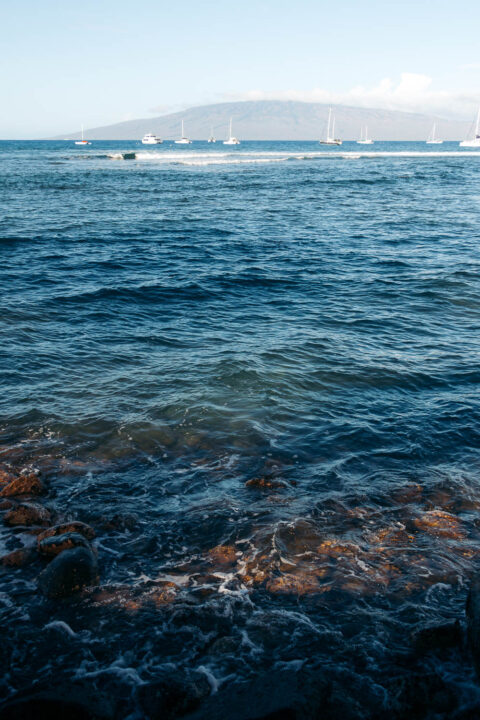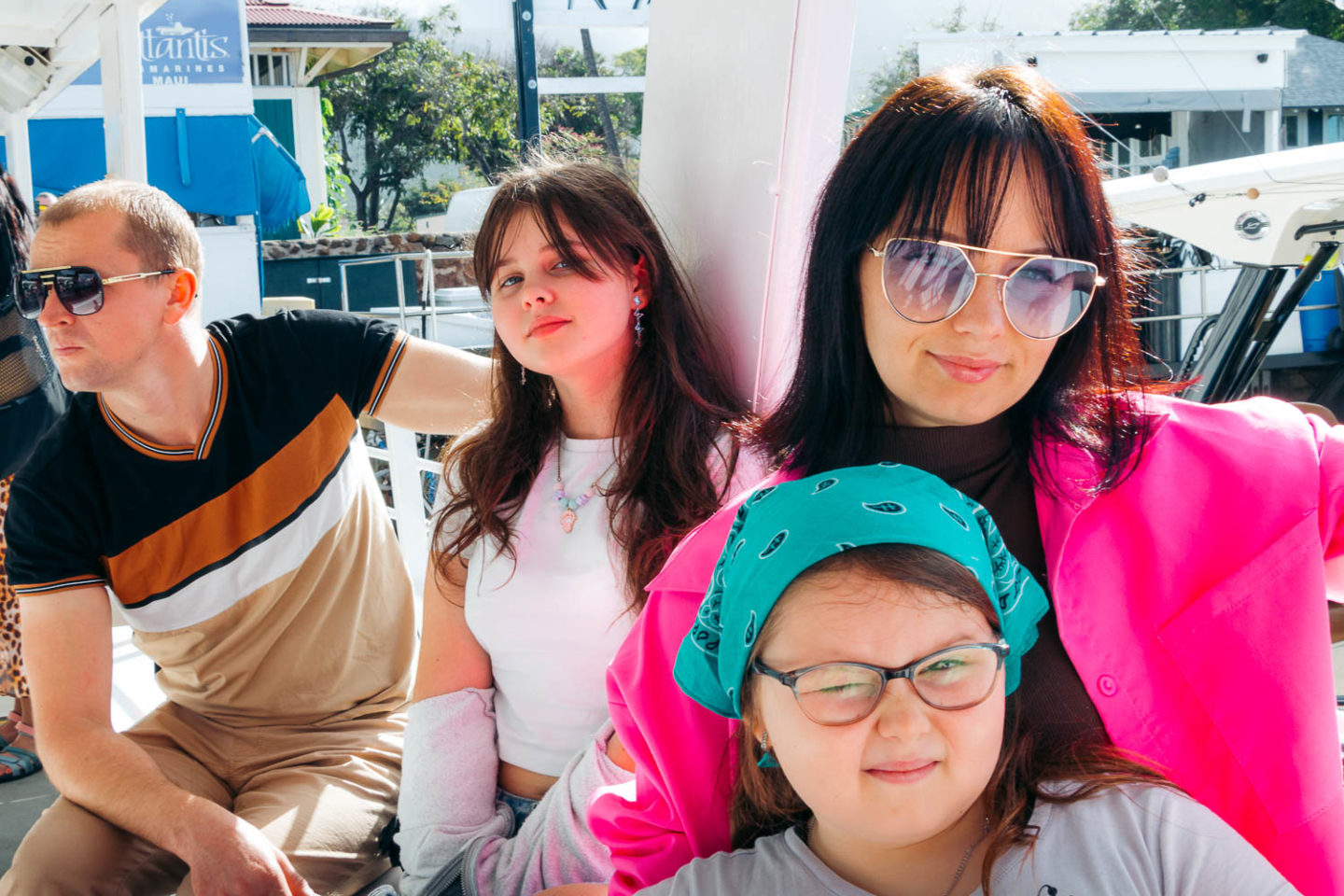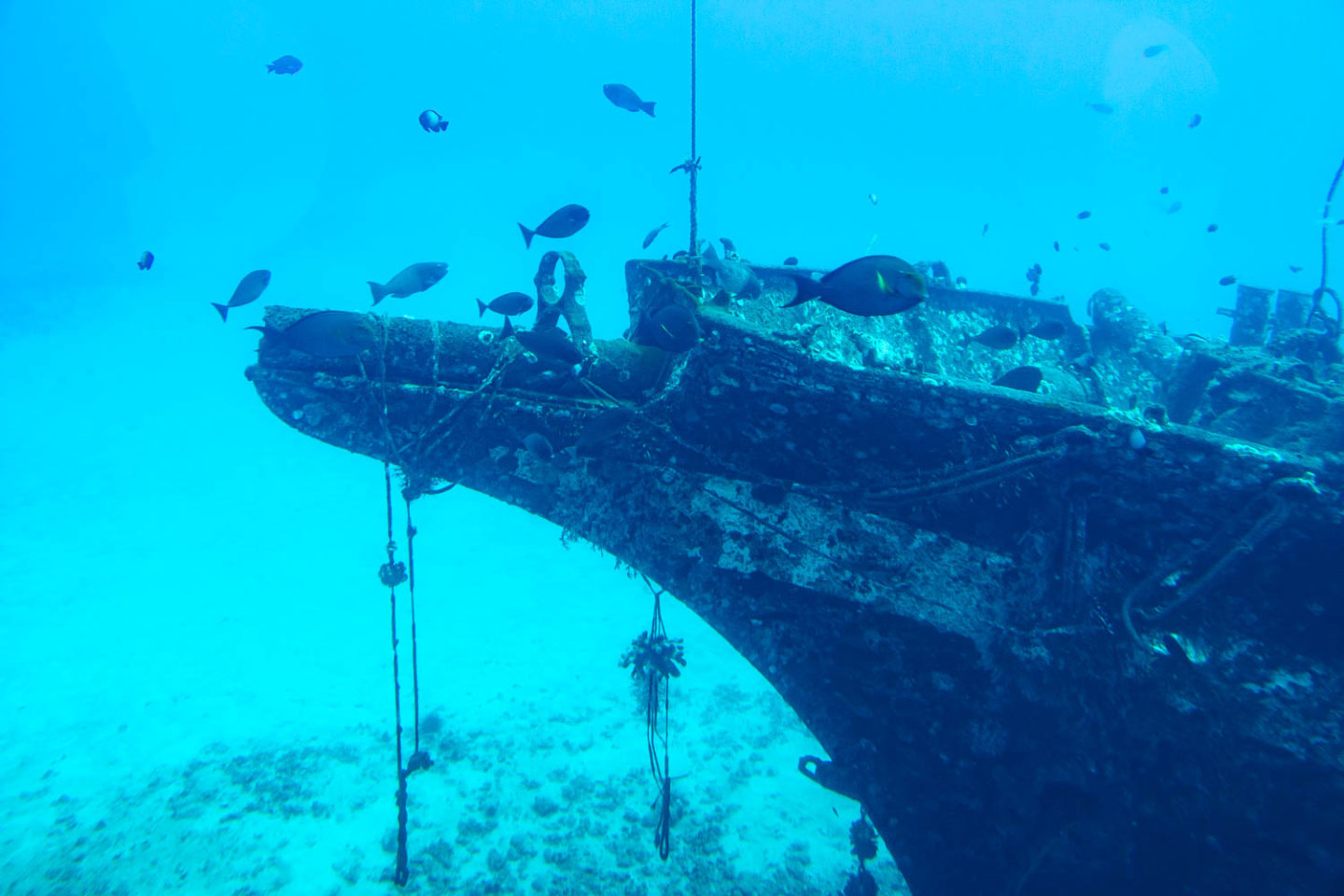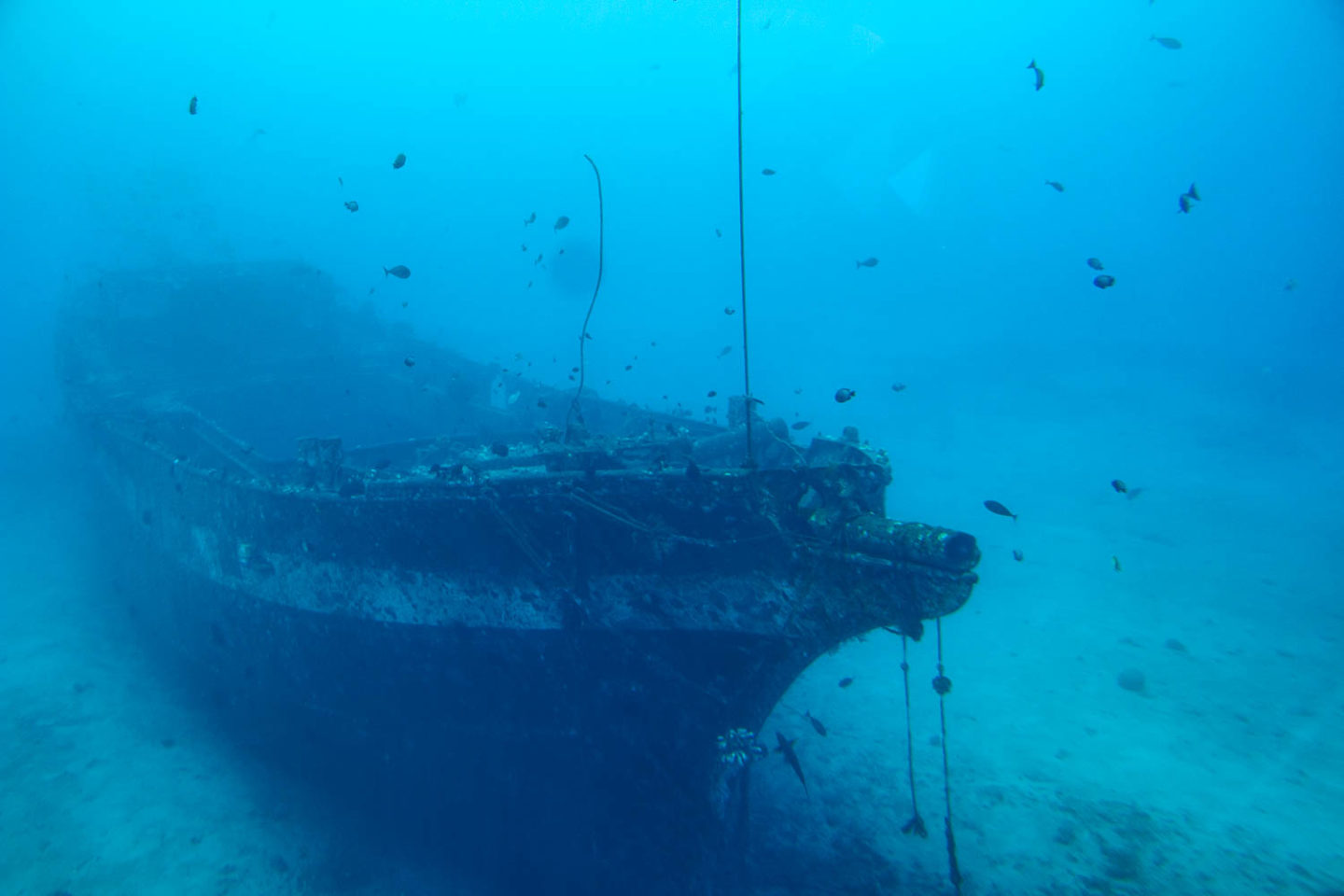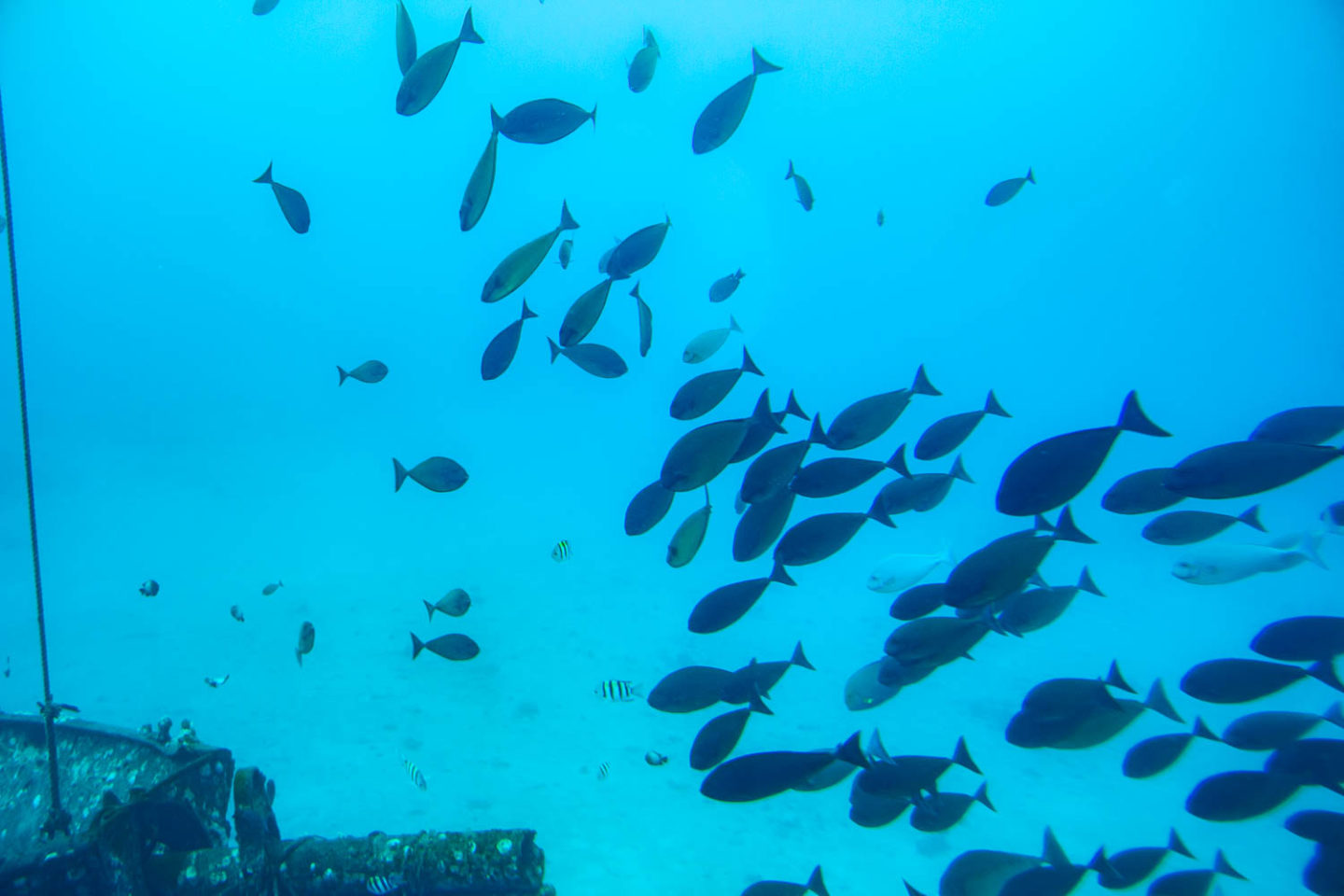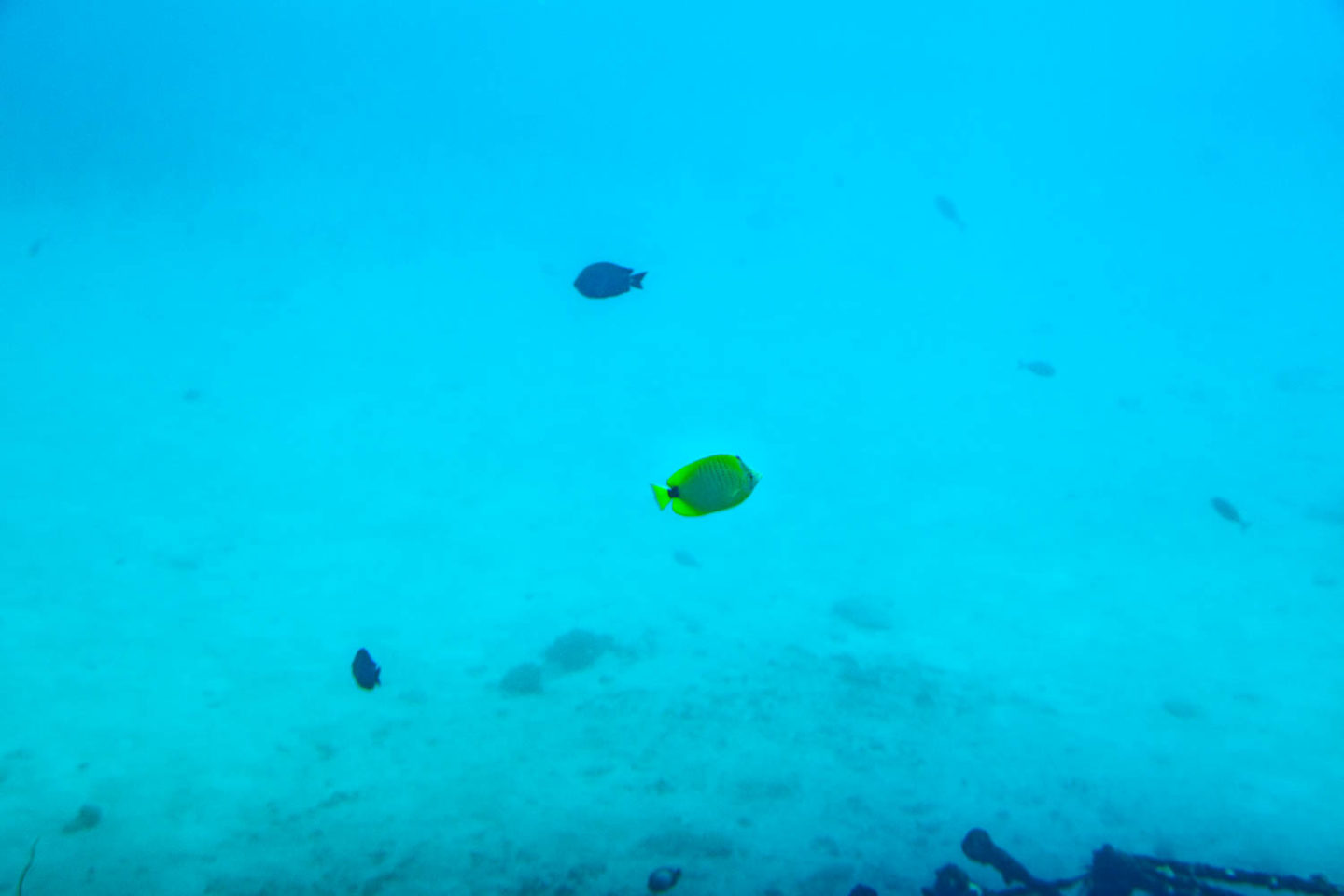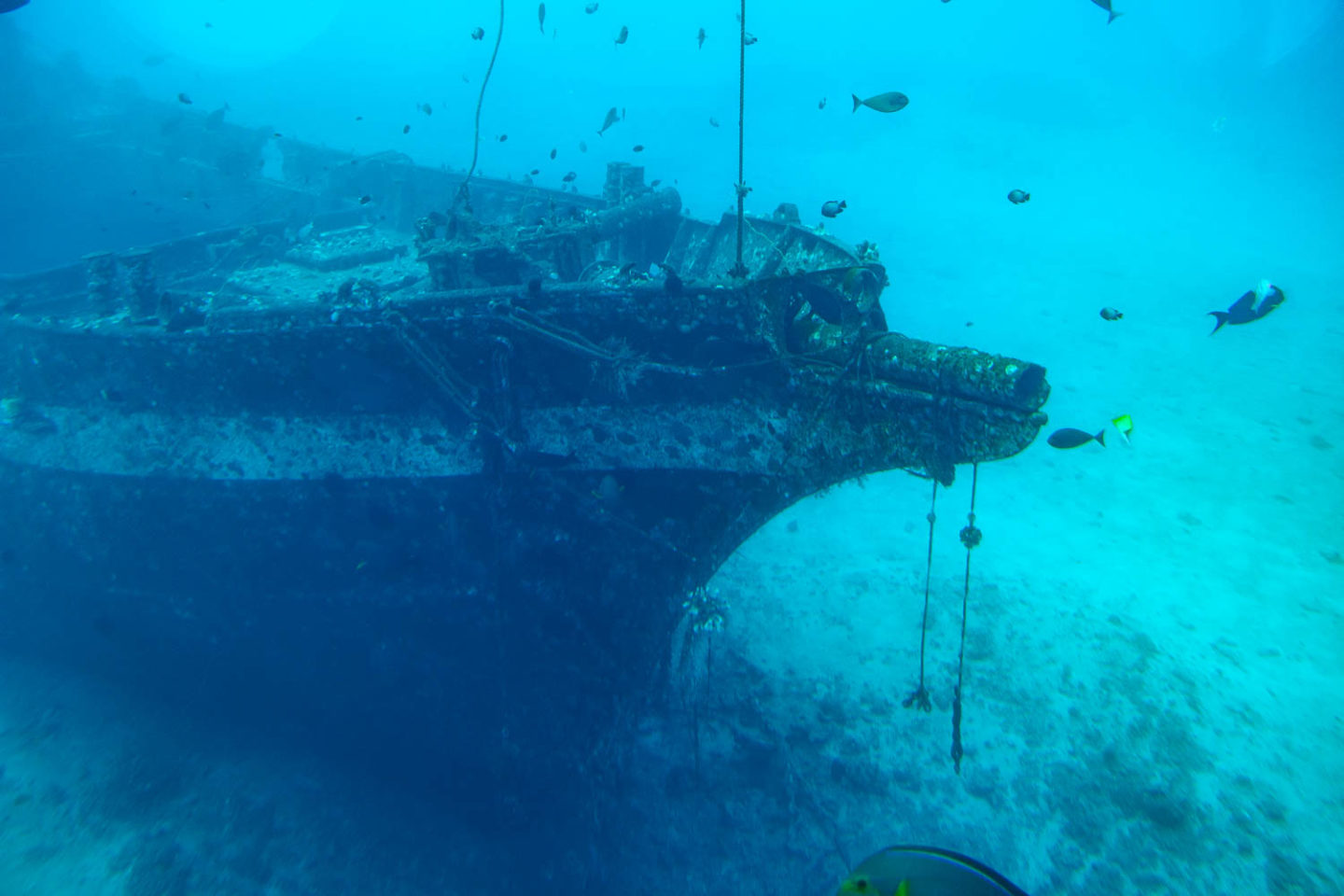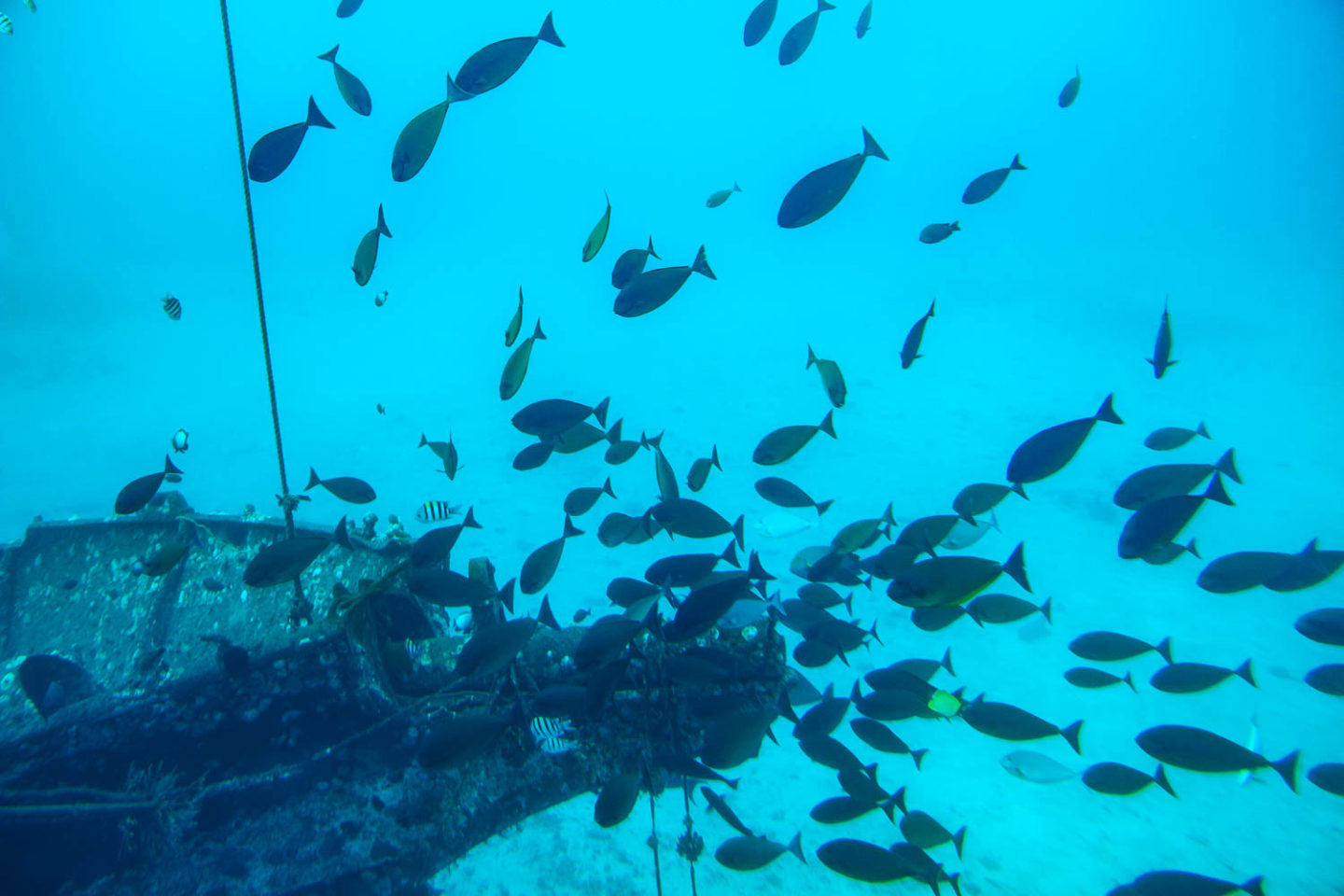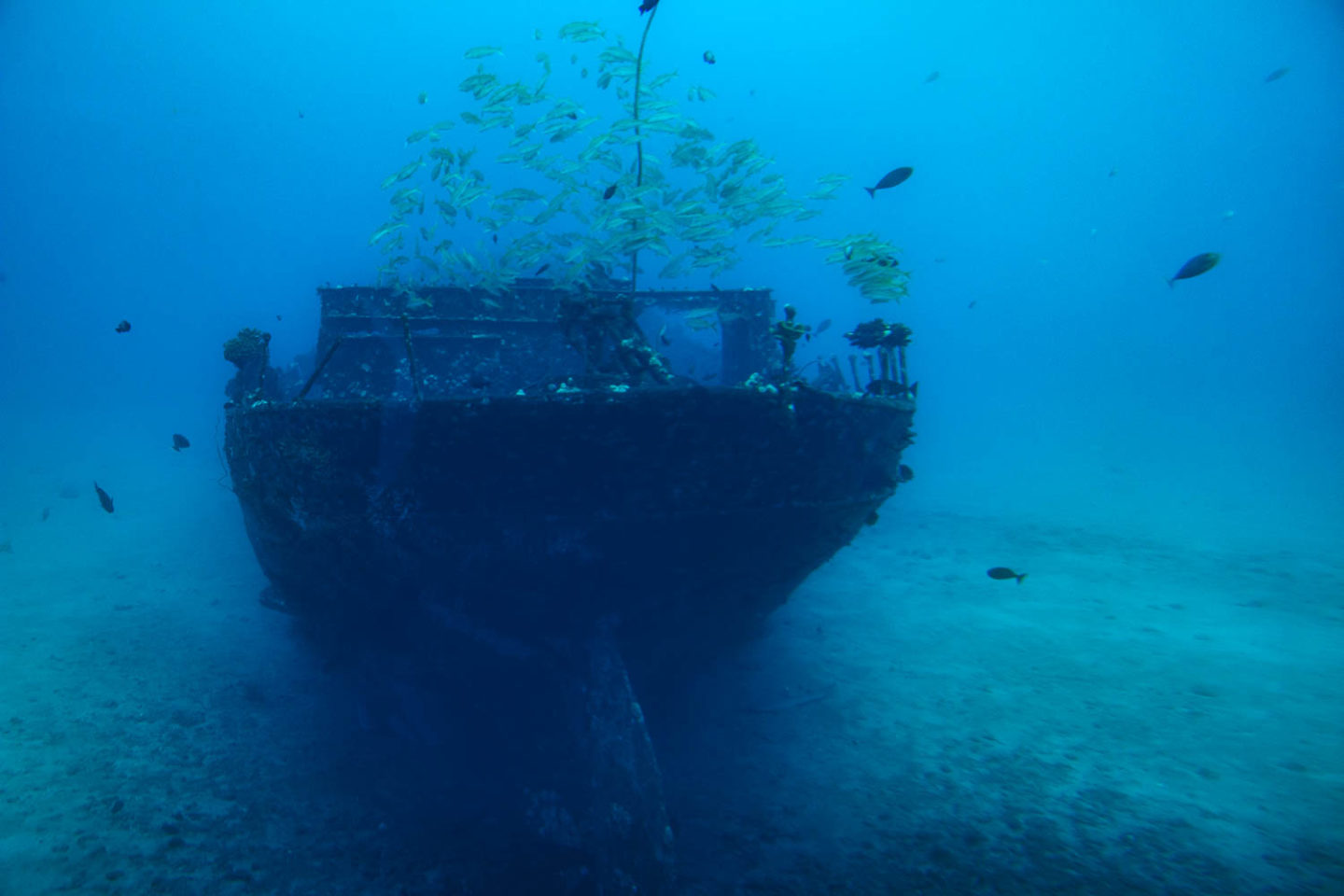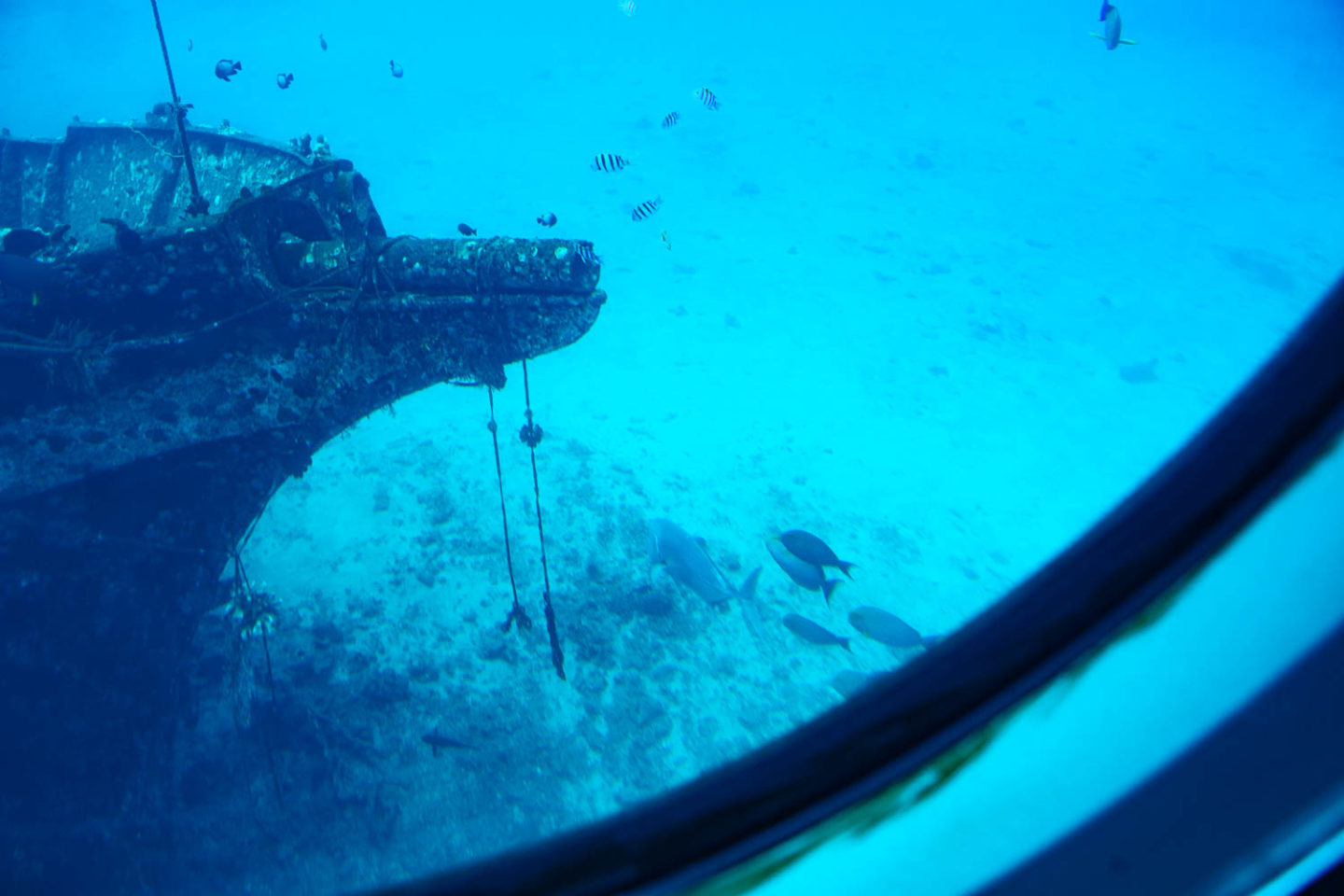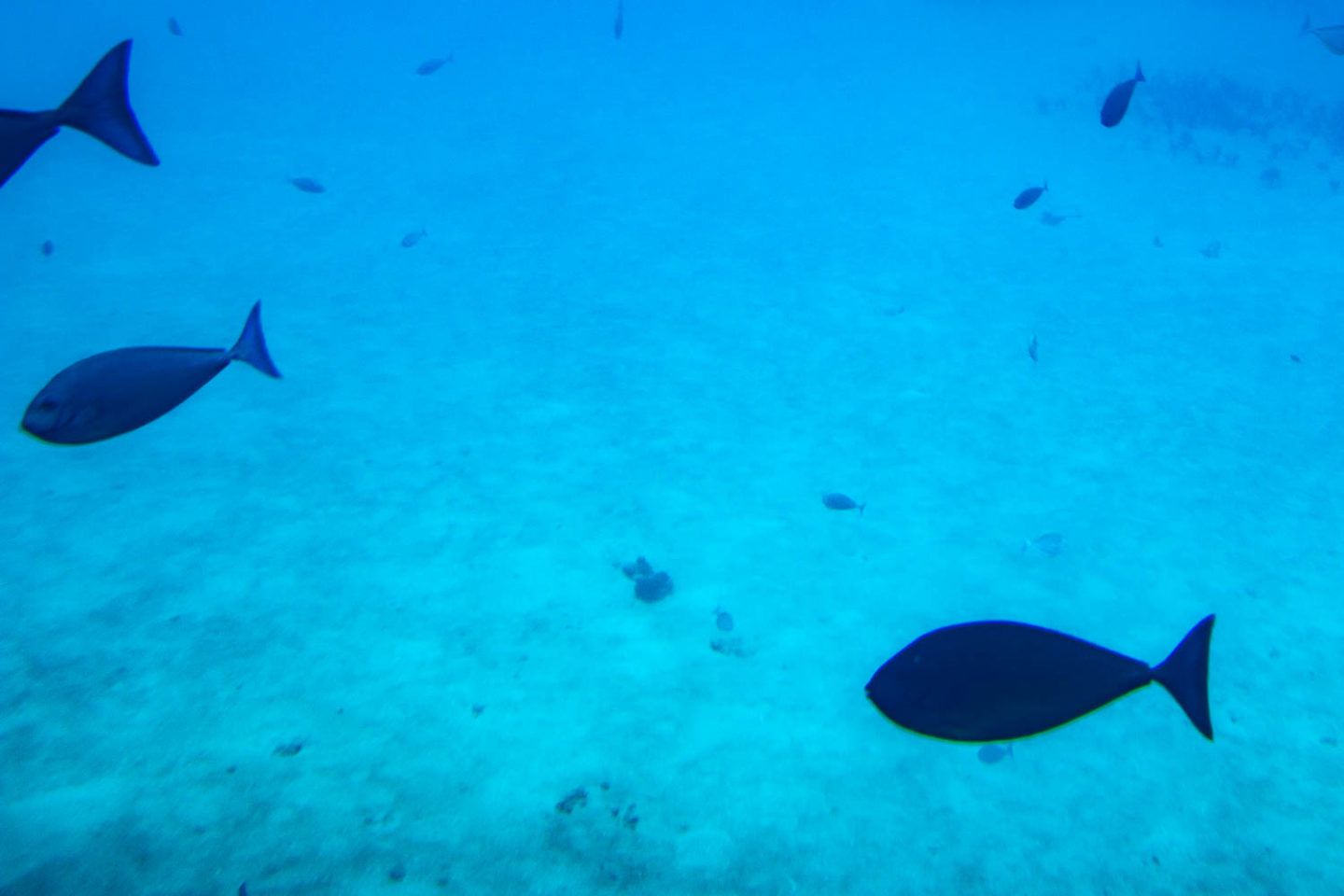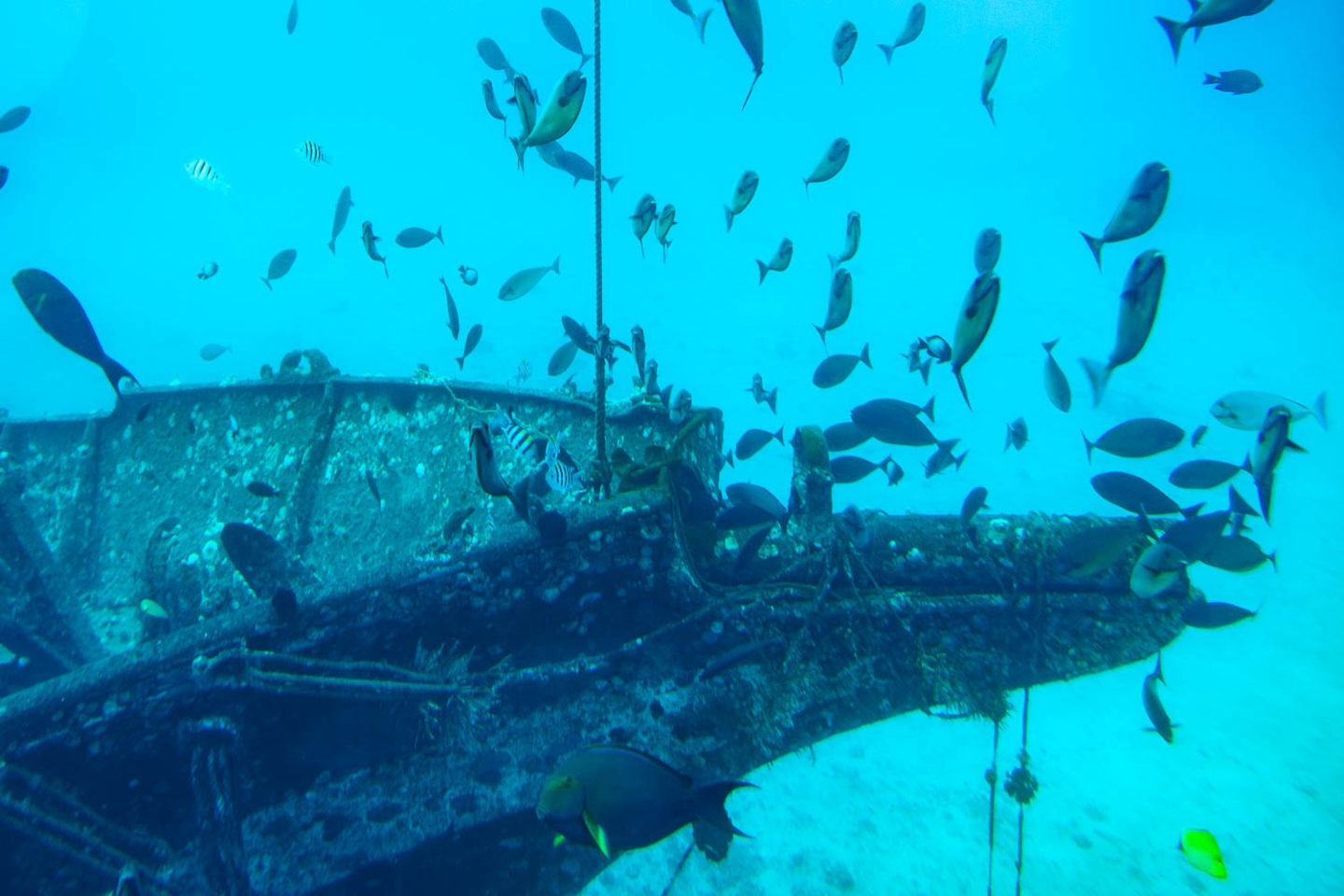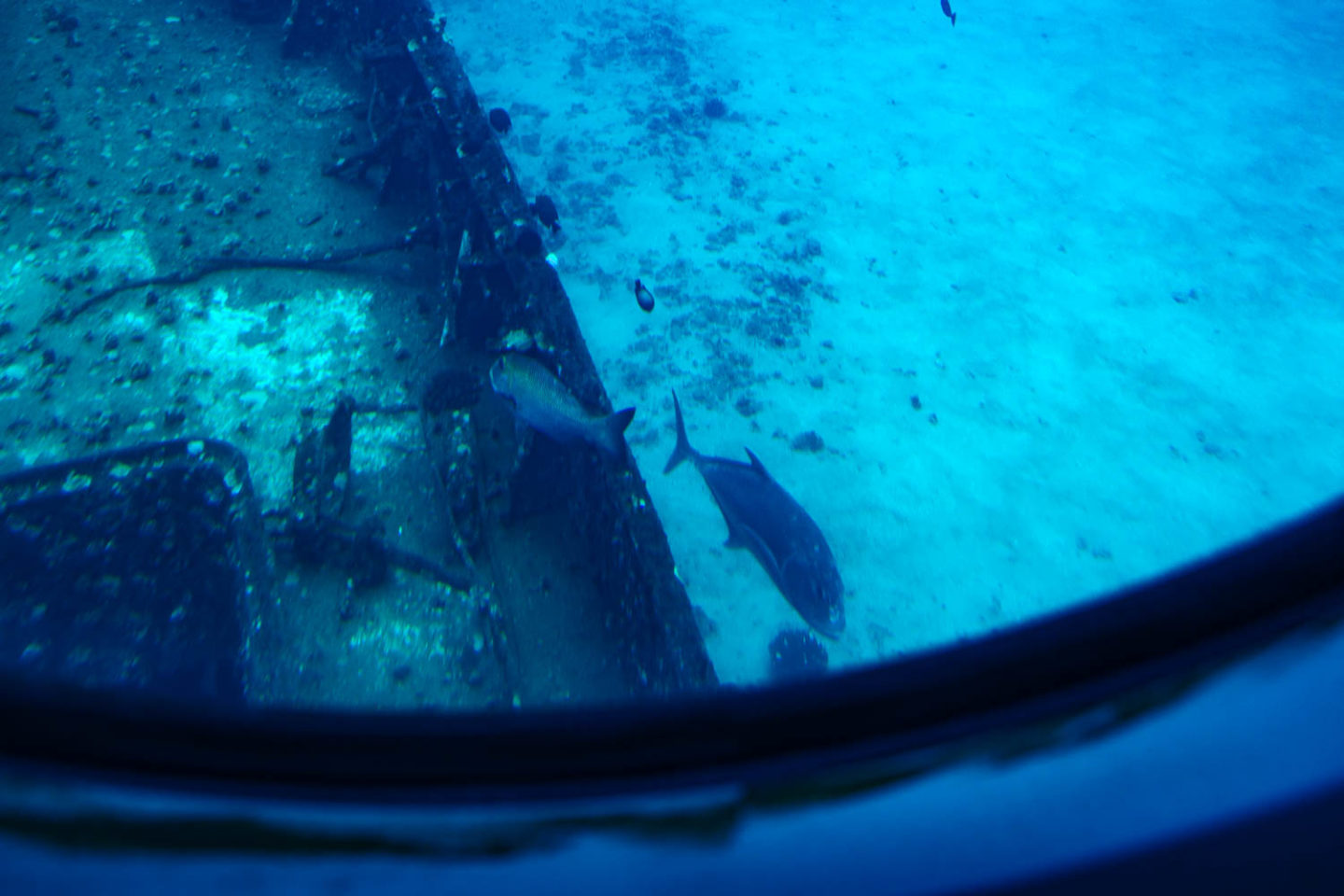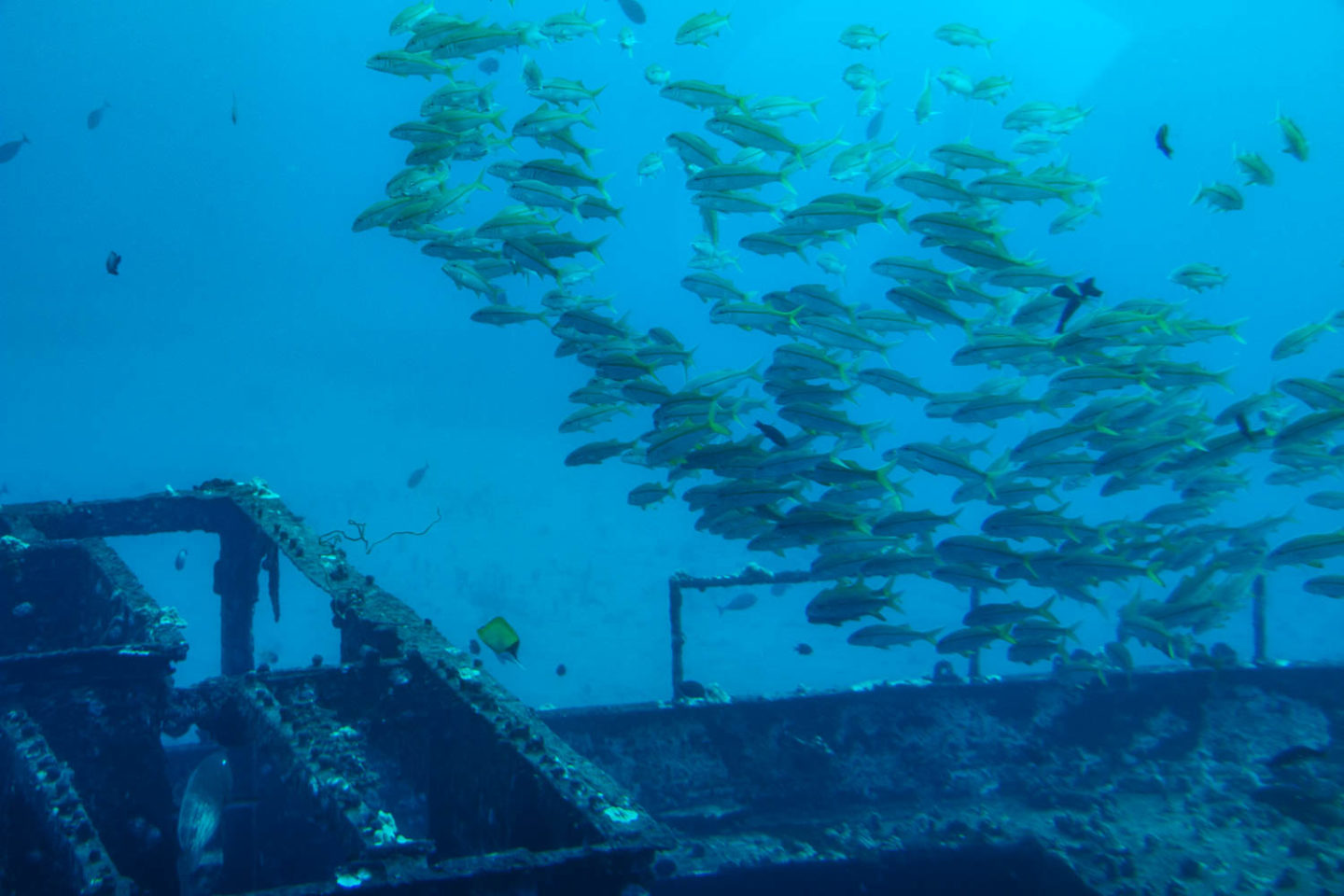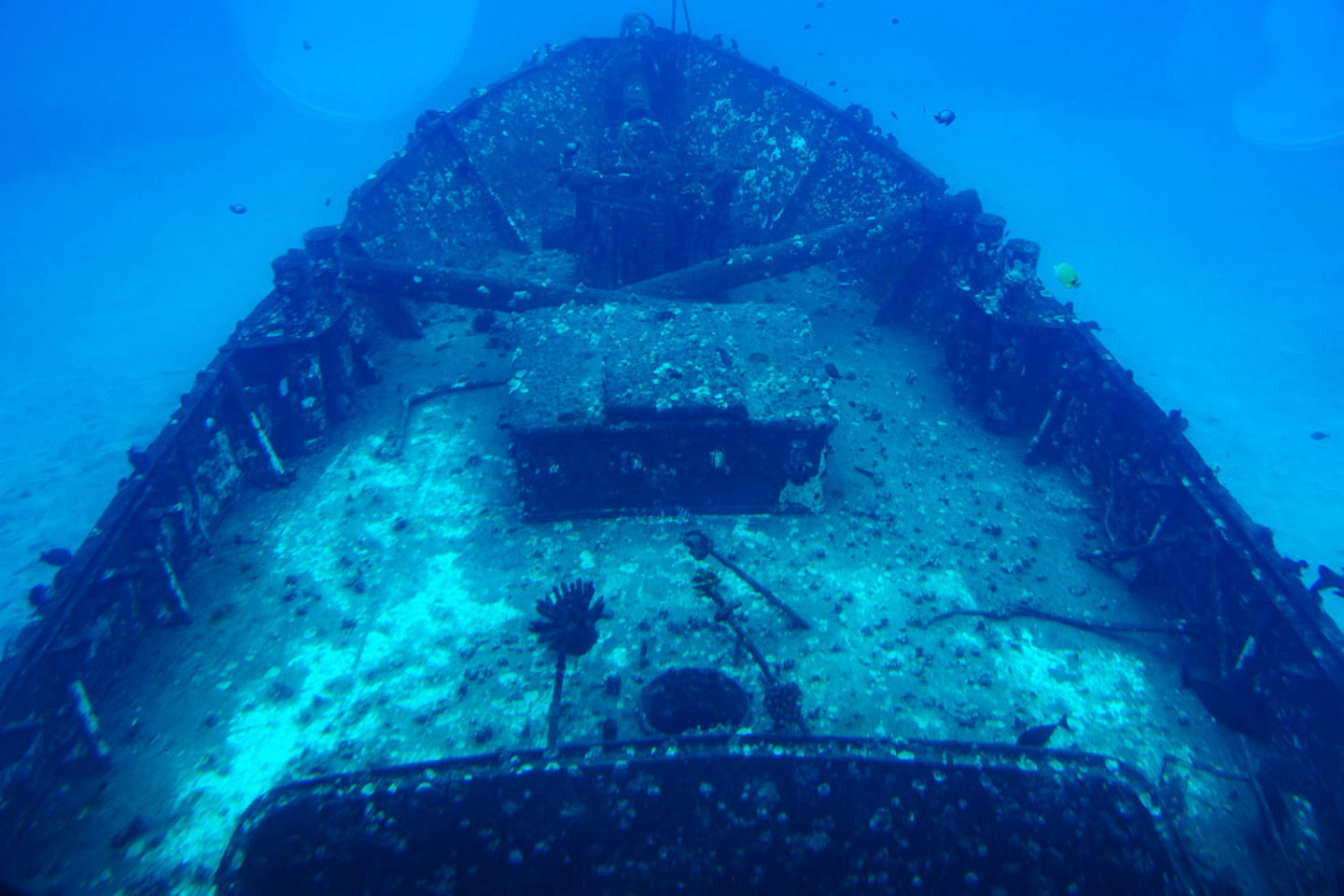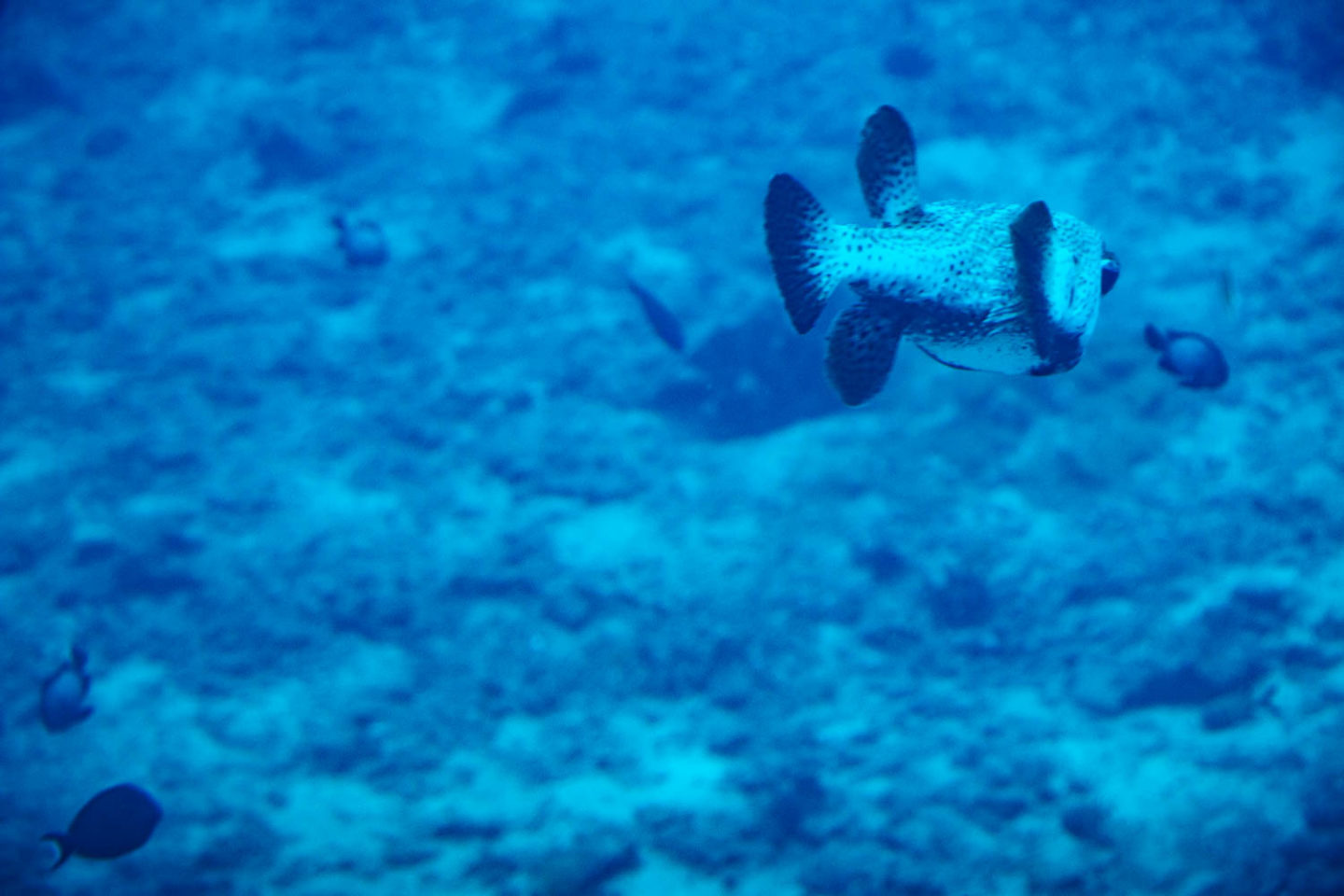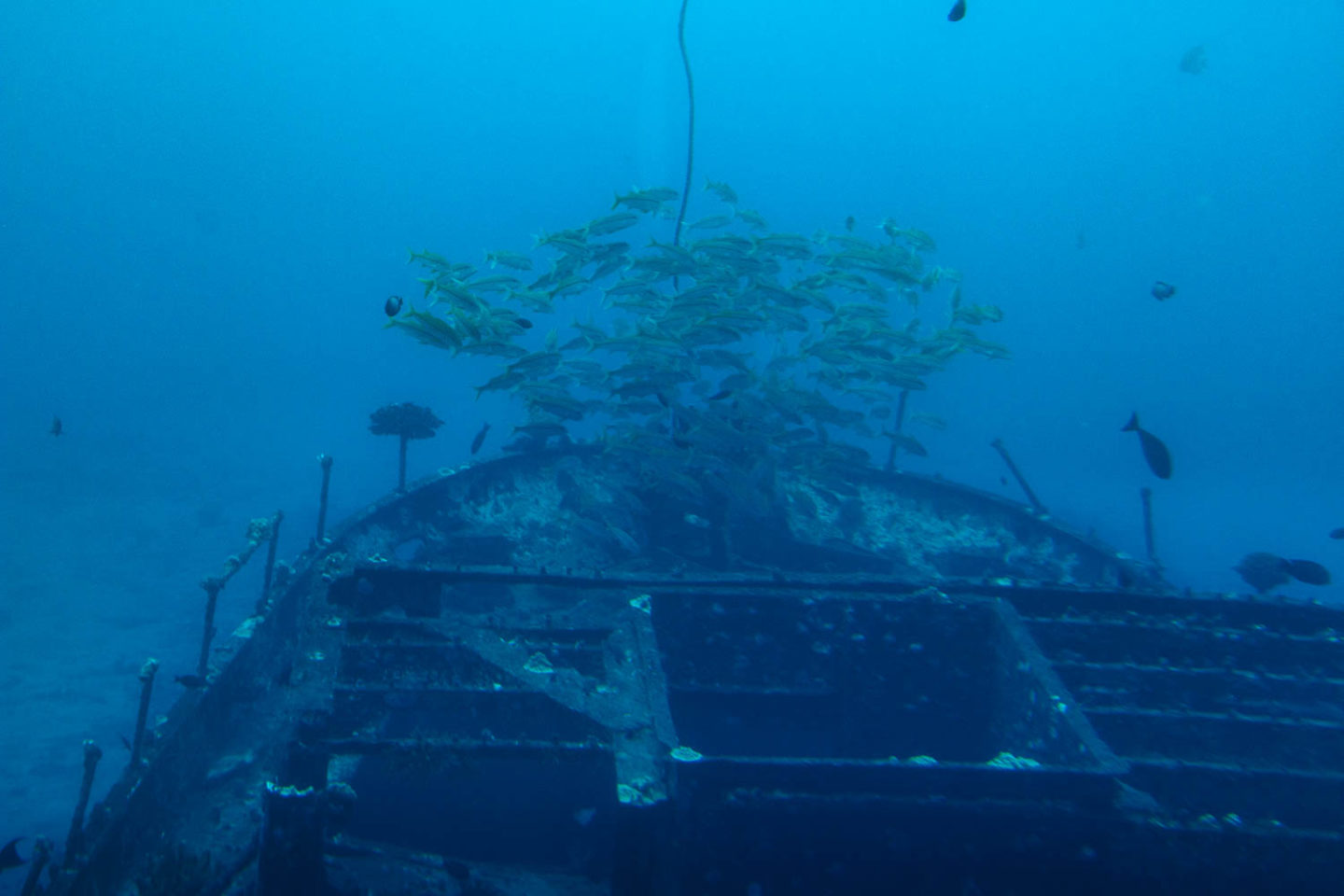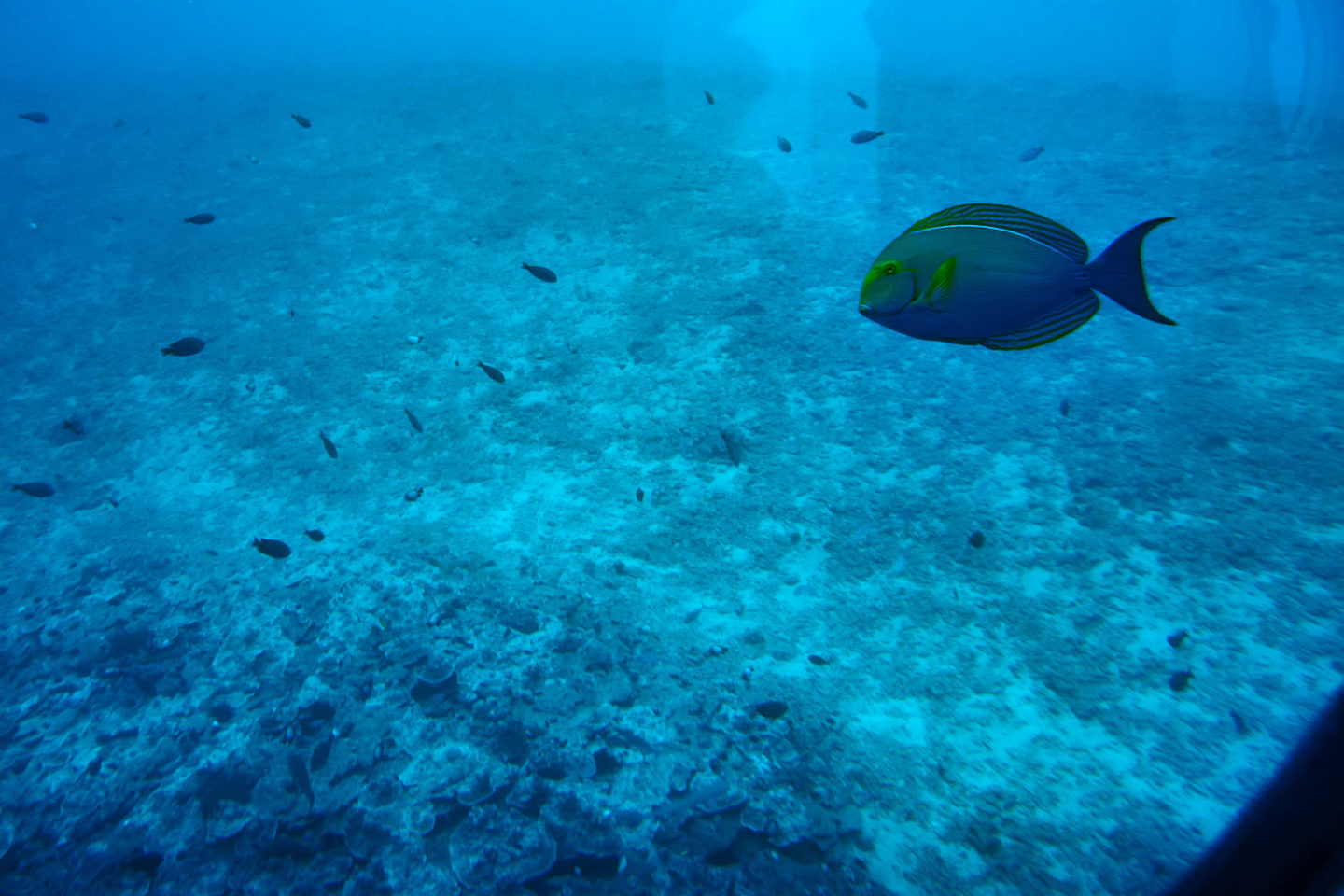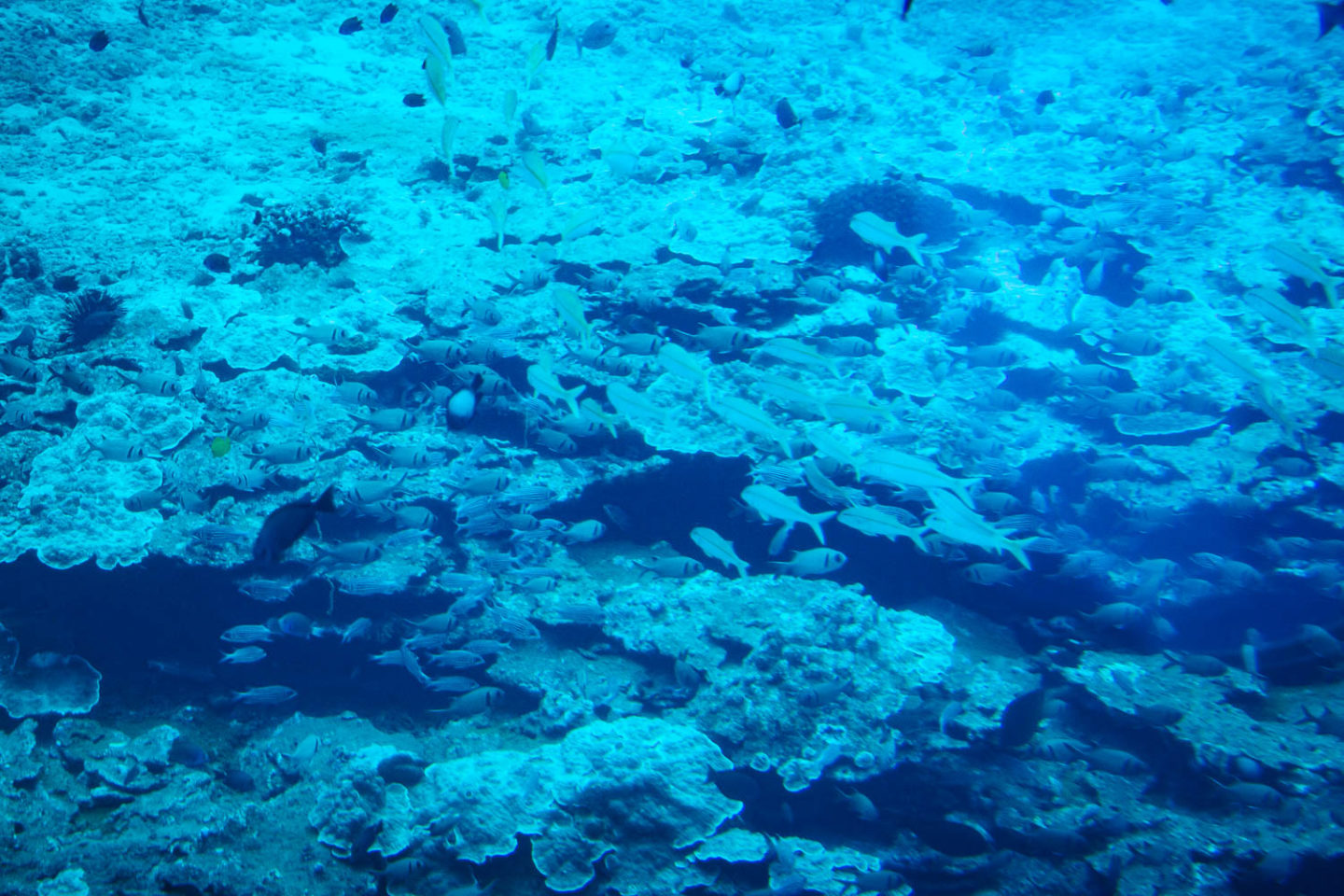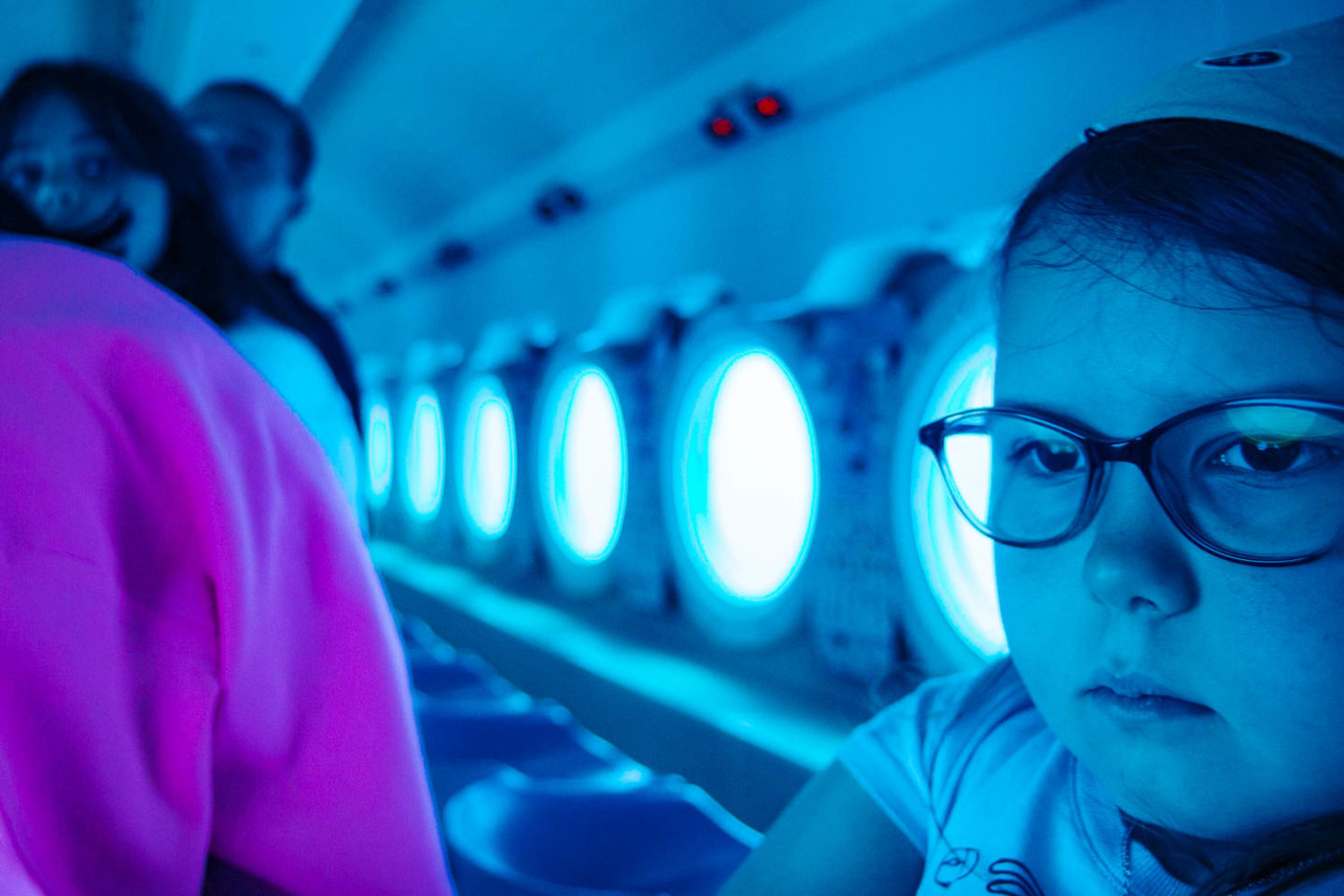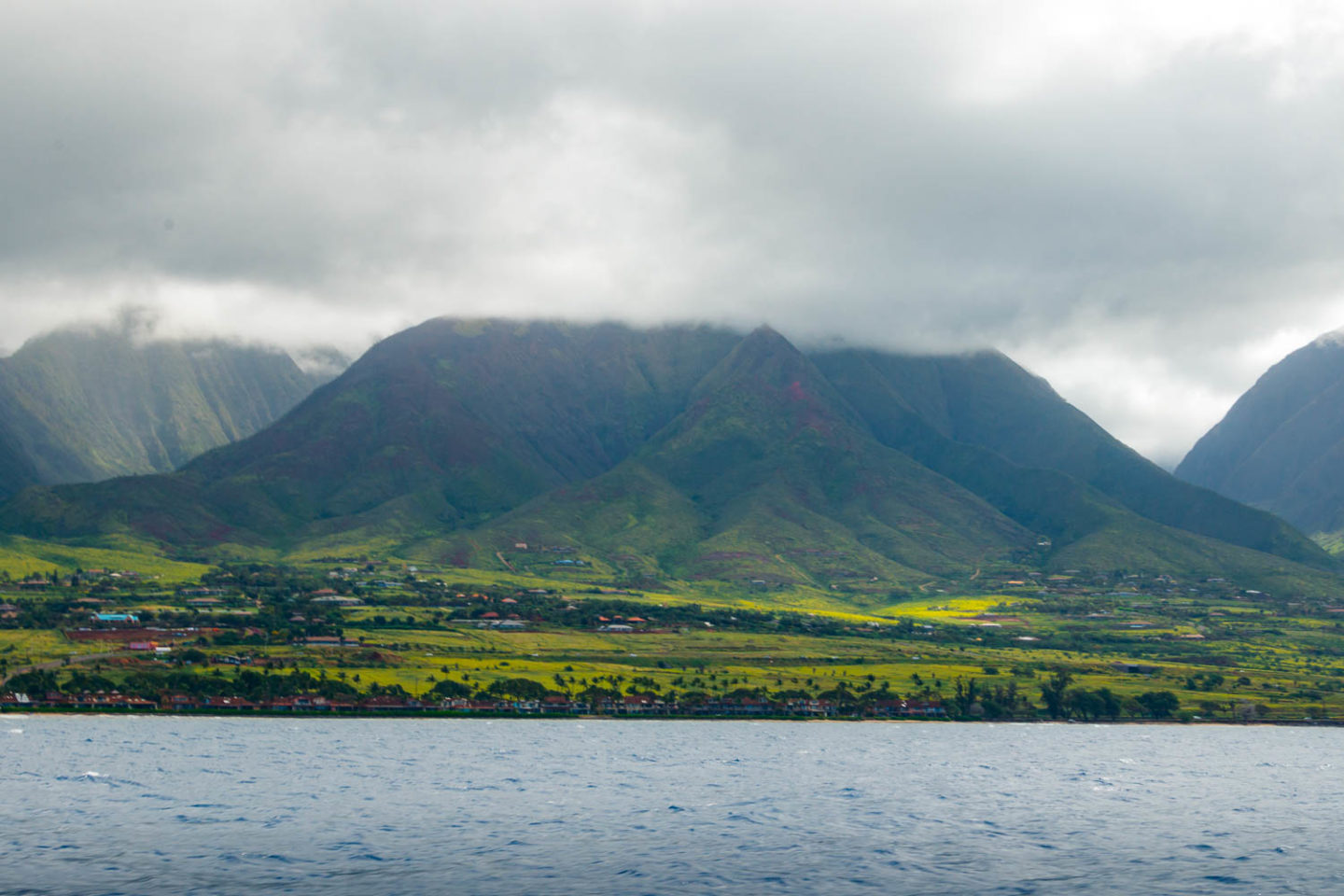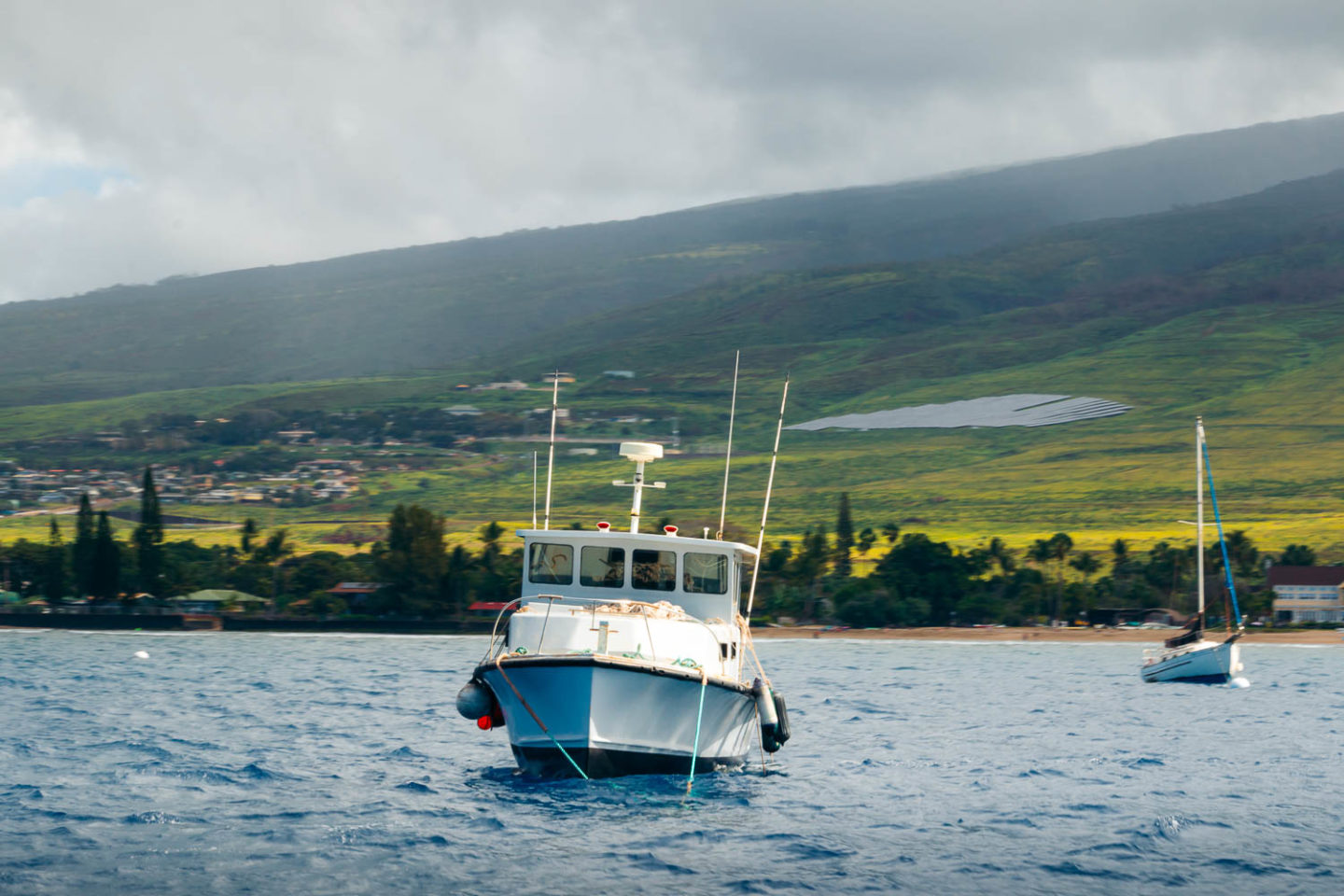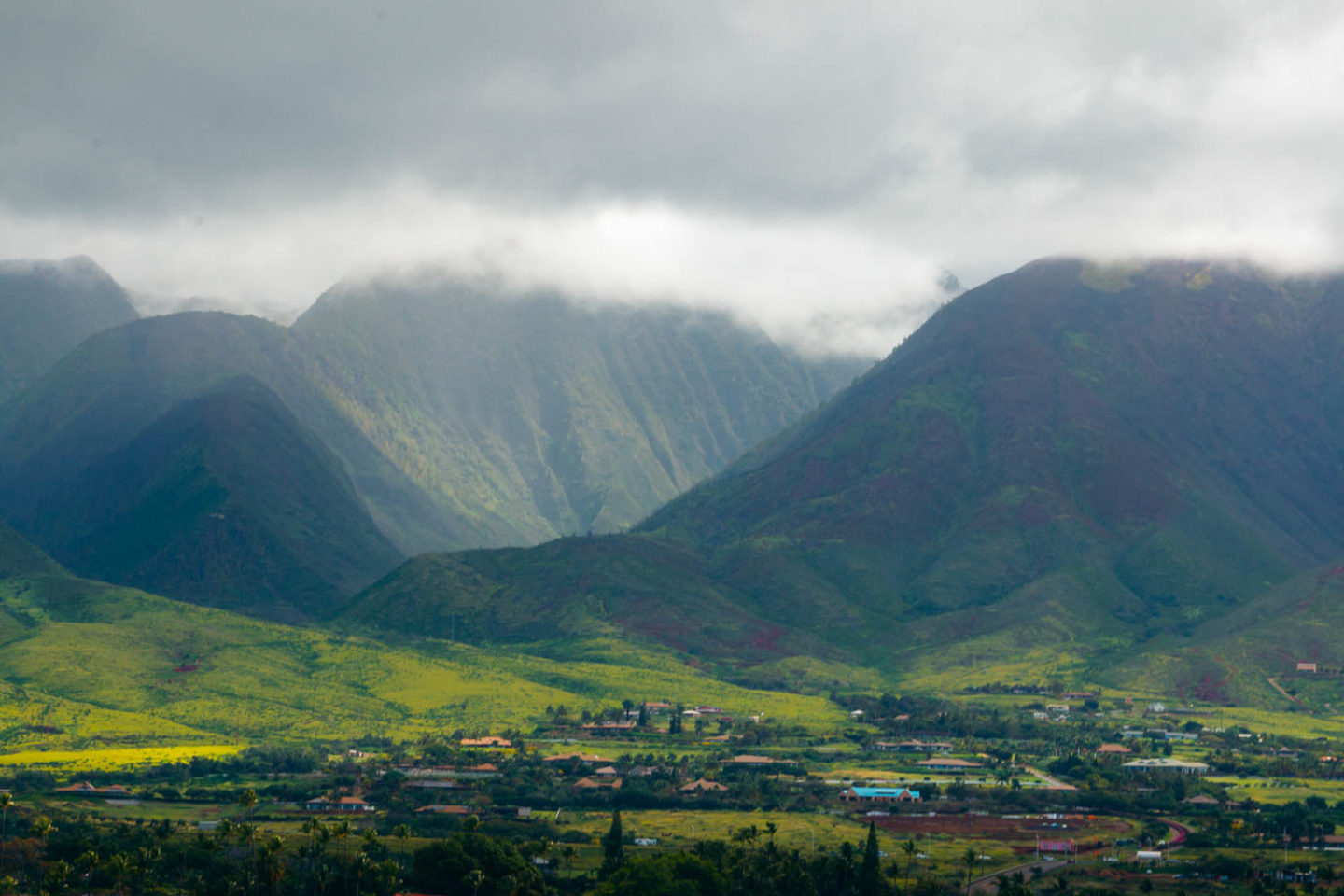The underwater world of Maui, the second largest island of the Hawaiian Islands chain, abounds with tropical fish, large marine mammals, and expansive coral reefs.
Last updated: December 12, 2025
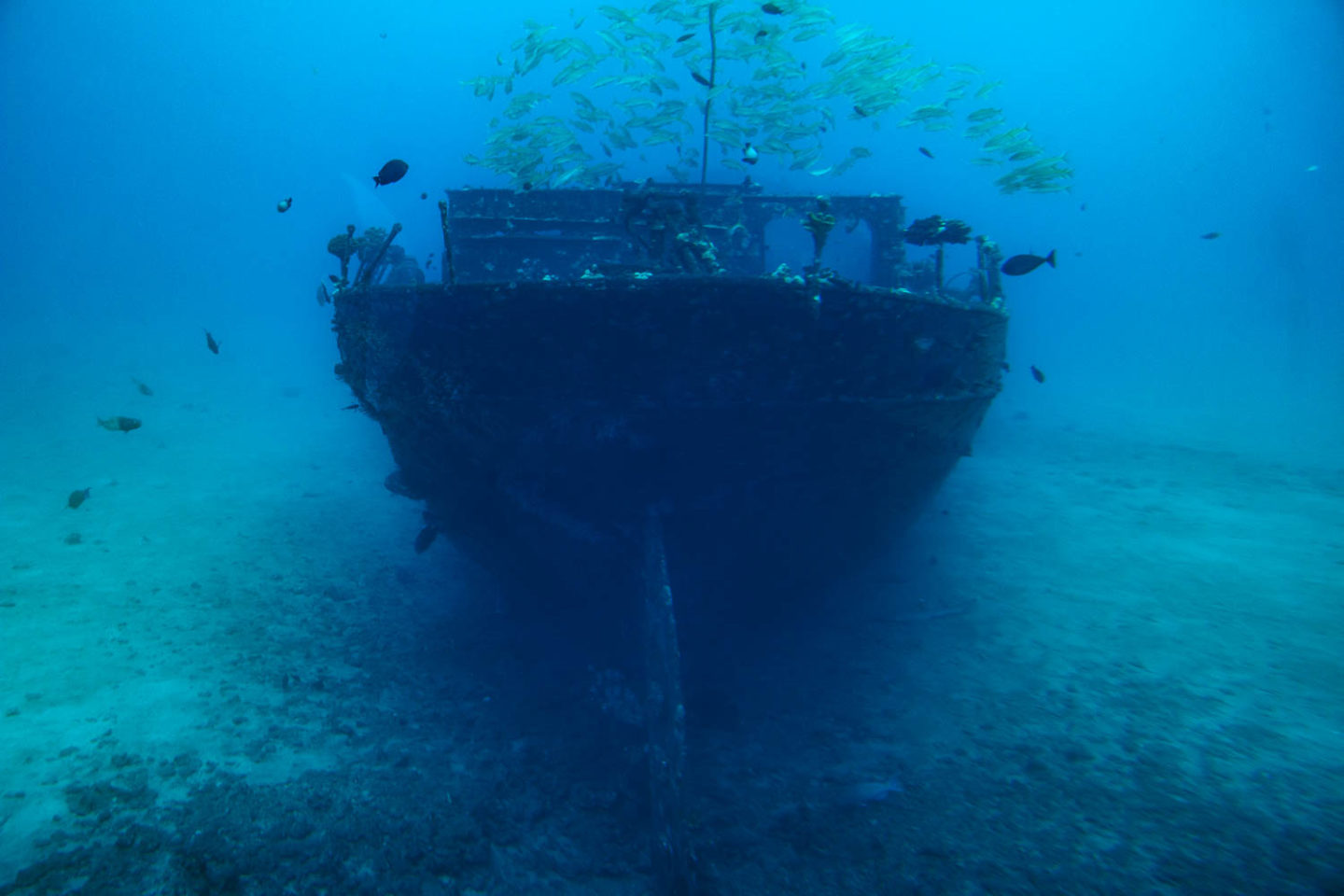
Maui Underwater Adventure with Atlantis Submarines
Set in the middle of the Pacific Ocean, the Hawaiian Islands boast a unique underwater community. The undersea world of Hawaii is so large and diverse that it can hardly ever get predictable.
Consisting of an overabundance of colorful tropical fish, Hawaiian green sea turtles, whales, dolphins, sharks – the main predators in the area – the warm waters of the Hawaiian Islands offer some of the best snorkeling and diving opportunities.
As a non-swimmer, let alone a diver, I could only dream of seeing the rich underwater world of Hawaii during our recent trip to Maui. Not until my brother who by word of mouth had found out about an alternative way to get underwater urged me to book Maui Submarine Tour offered by Atlantis Adventures.
Maui Atlantis Submarine Tour
Seizing large demand, Atlantis Submarines has been opening the underwater world of Maui, Oahu, and Hawaii (The Big Island) for non-divers and travelers with kids since 1988. For more than three decades, the company has introduced the tourists to the local marine wildlife, unveiled underwater treasures, and educated about fragile coral reefs.
As one of the largest providers of this type of entertainment, Atlantis strives to share the beautiful underwater world of Maui in the most organic way so no fish or other marine creatures are disturbed or threatened.
Maui Atlantis Submarine offers a few tours every day. Each group includes 48 people or less, allowing enough room for every visitor to observe the unique undersea world of Hawaii.
The underwater excursion lasts 1 hour 45 minutes. Half of this time, you spend on a boat that takes you to a real submarine “parked” in the Pacific Ocean. The culmination of the Maui underwater excursion happens at the depth of 85-100 feet where tropical fish swim in front of a porthole you are “glued” to, filled with excitement and utmost wonder.
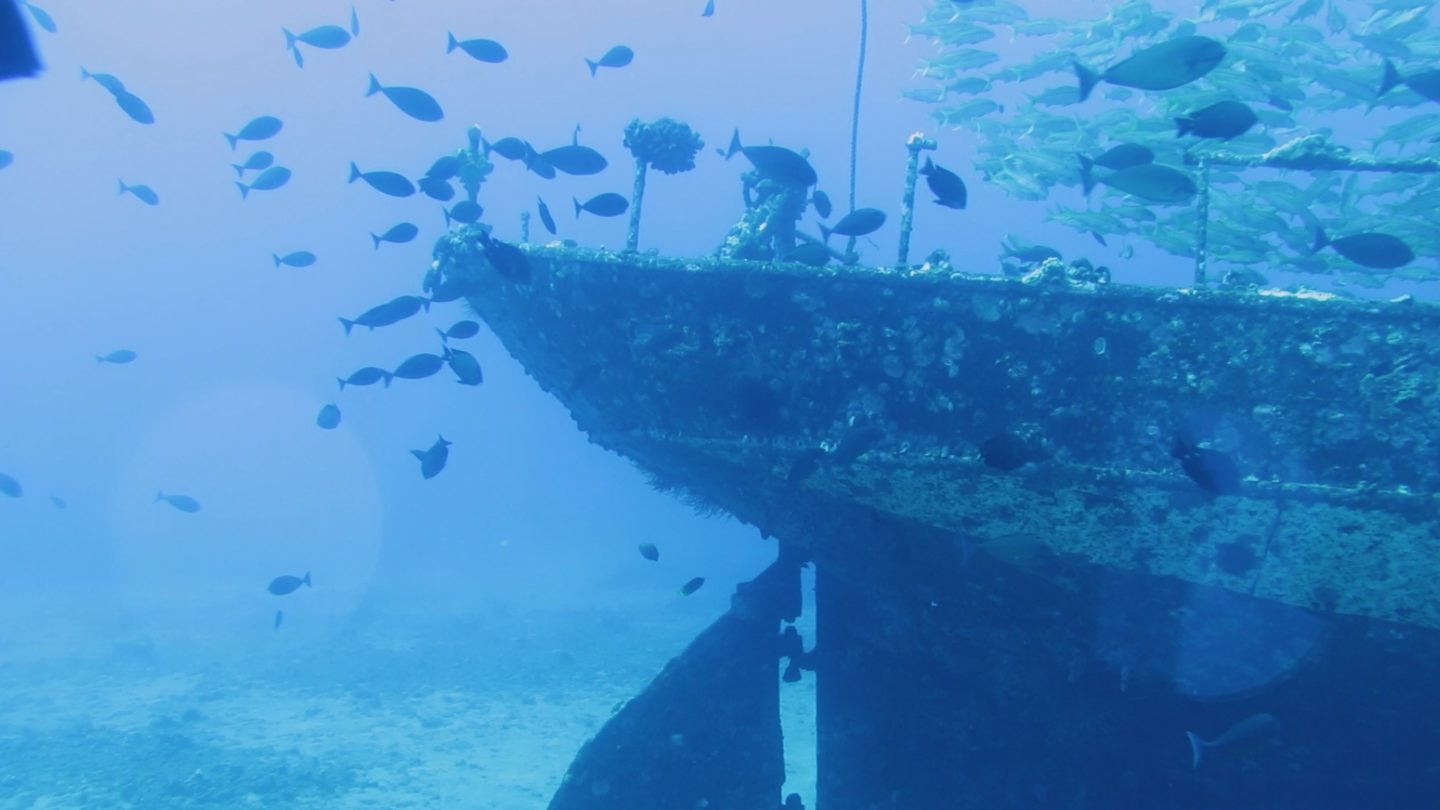
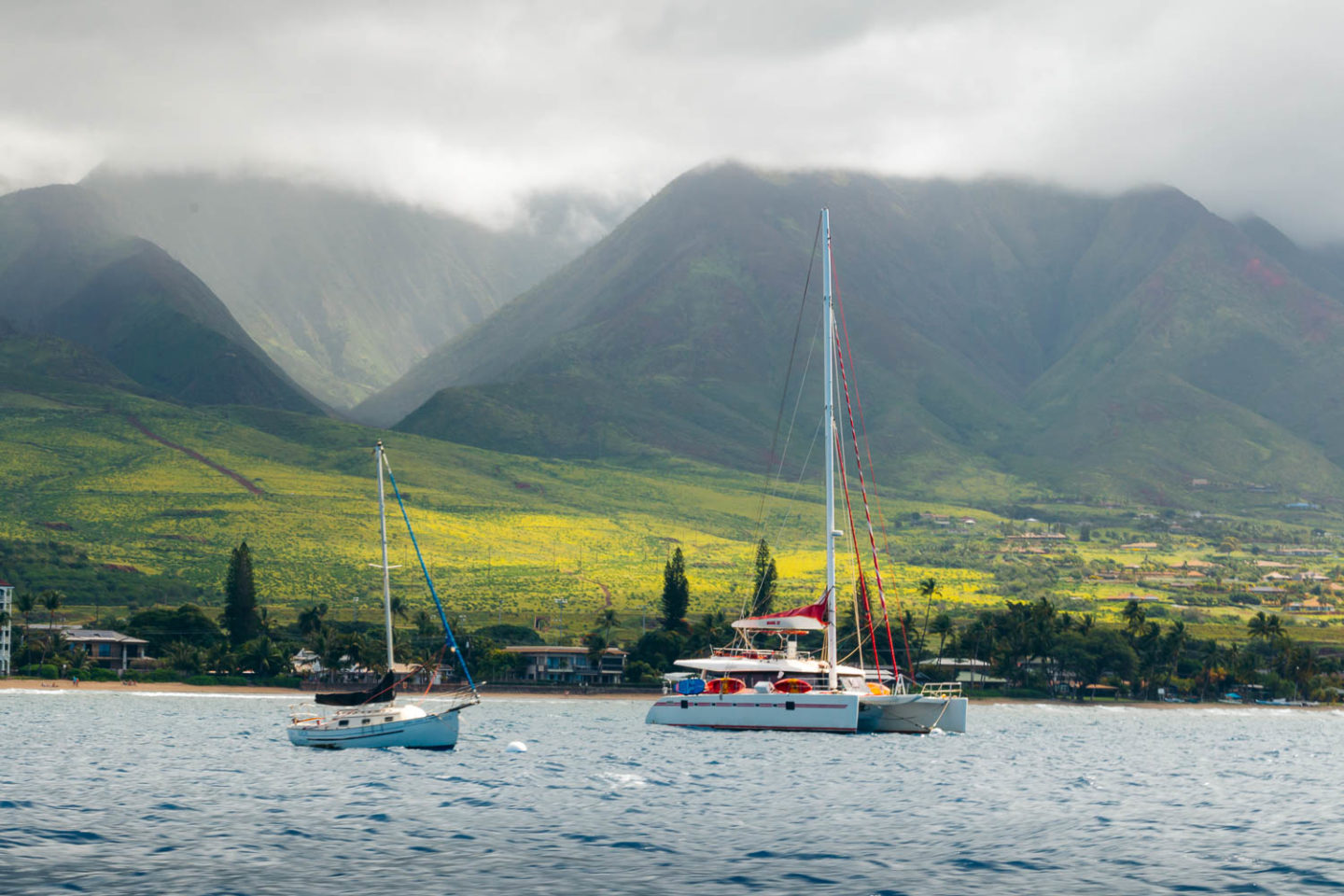
THE UNDERWATER WORLD OF MAUI: ATLANTIS SUBMARINE EXCURSION
1. Watching Maui Marine Wildlife from Atlantis Shuttle Boat
We signed up for the first, 9-o’clock Maui Undersea Adventure of the day. Promptly following instructions, we arrived at Lahaina Harbor around 8:00 a.m. The latest text message the company had sent informed me that free parking could be found on Front Street.
The busiest area of the town was just getting ready for another hectic (which felt so relaxing compared to Los Angeles) day by the ocean. Yet limited parking spots along the street were long taken. And so were most of the spots at a free parking lot located at the corner of Prison Street and Front Street.
We were lucky to claim one of a few still open spots. With a 3-hour limit the parking lot allowed, we had more than enough time to peek at the Maui underwater world and explore the heart of Lahaina.
At the Maui Atlantis Submarine Stand nestled at the far corner of the harbor, all morning underwater “explorers” were expected to check in 45 minutes prior to the departure. After receiving our tickets, we were free to roam the harbor before boarding the shuttle boat.
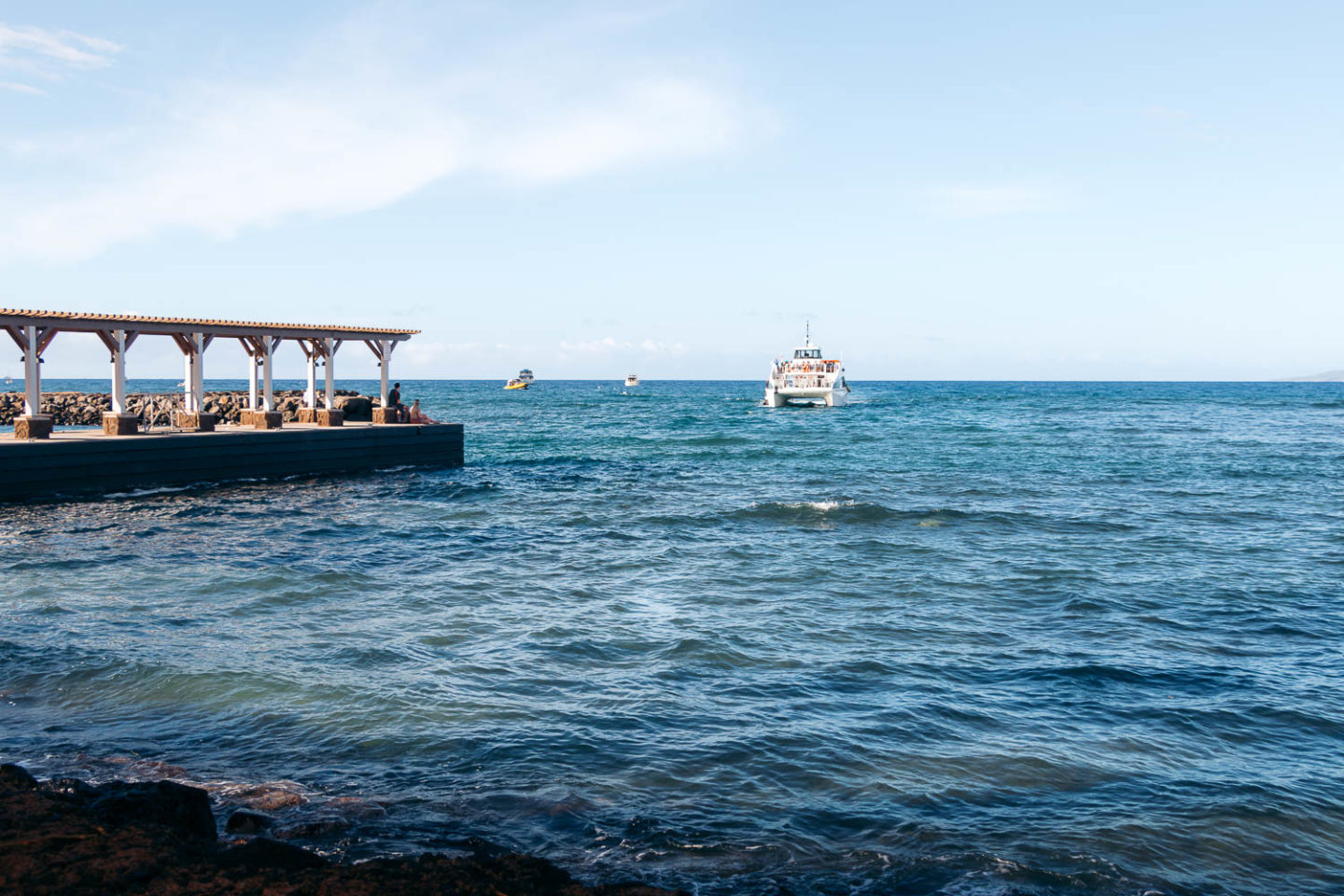
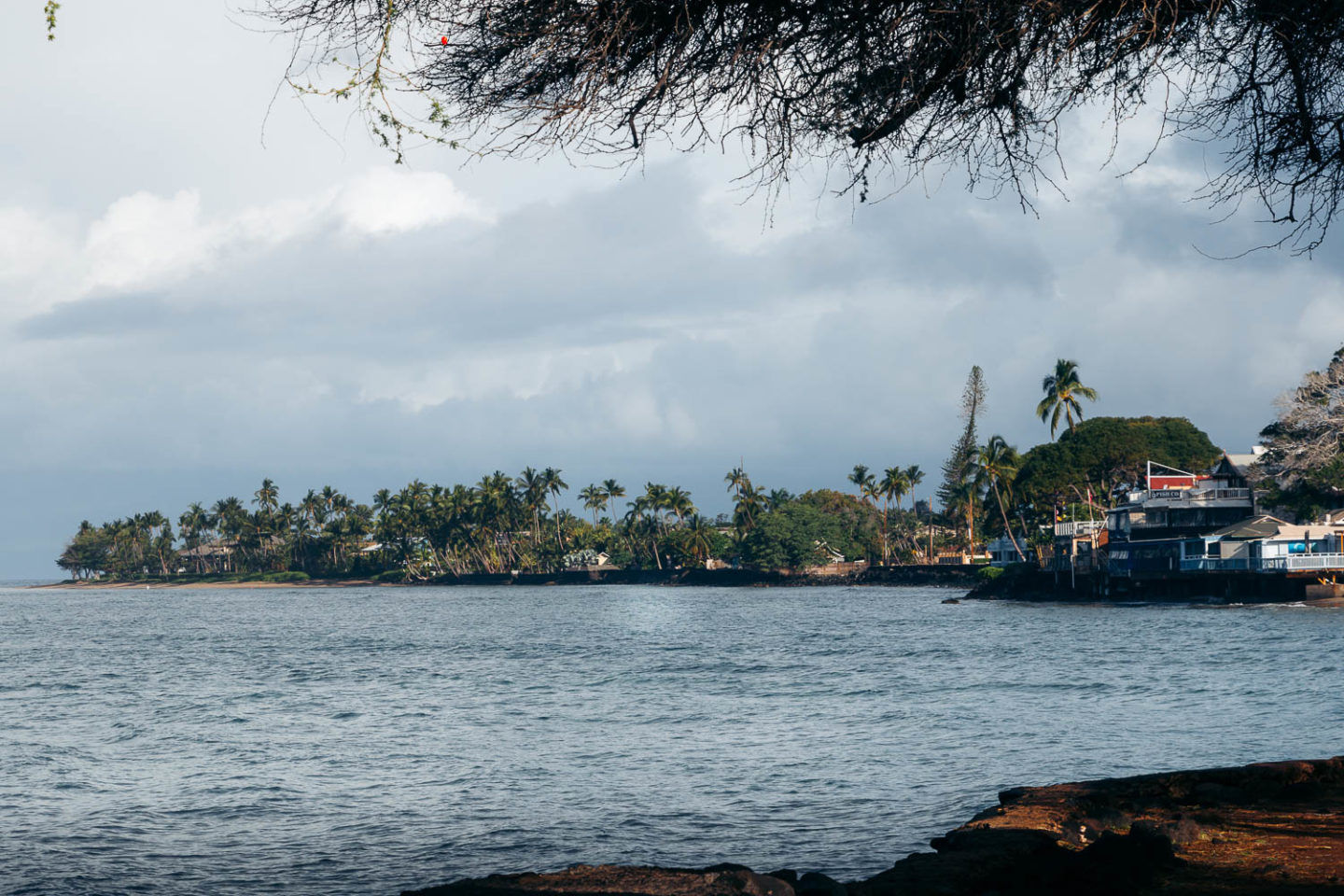
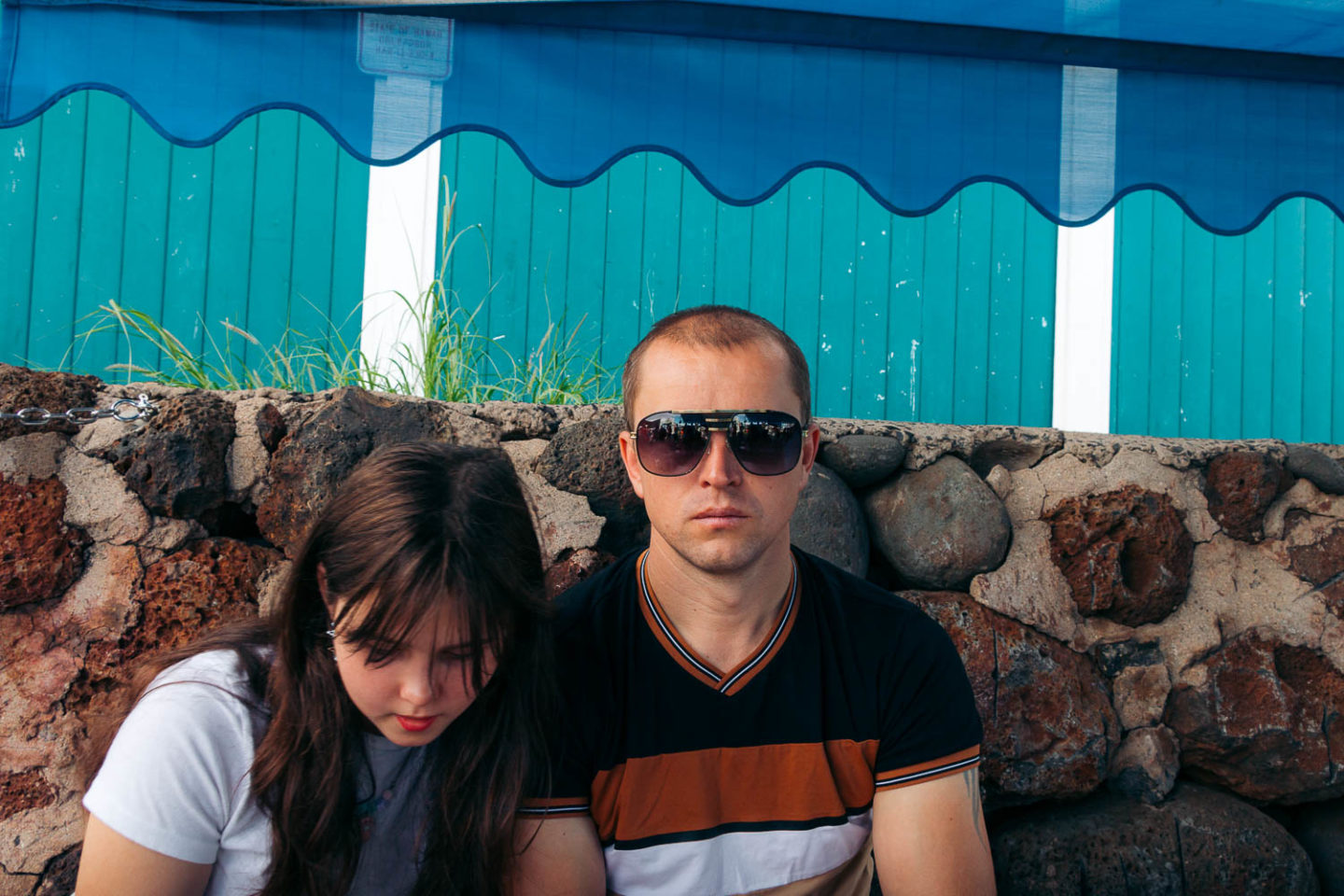
Humpback Whales
Promptly at 9:00 a.m., we along with some other 10 underwater enthusiasts boarded the Atlantis Submarine shuttle boat. The ride to the submarine was about 45 minutes. In reality it wouldn’t take that long had we not stopped to watch humpback whales breaching near the coast of Maui.
Again, we were lucky. On that warm morning in early March, a mother and a baby enjoyed the warm waters of the Pacific, raising their tail flukes out of the water and slapping them on the water’s surface.
The first indication that the whales are near are by their blow. The humpbacks exhale air by breathing out through a blowhole on the top of their head. The air comes out in the form of a spout that at first may look like a column of water.
The mother was less active, though. At one point, our narrator-guide even worried if she was nearby. But the baby whale didn’t hesitate to blow out the air and show himself off.
The humpback whales migrate from cold Alaskan waters to Maui to mate, calve, and rear their babies. The marine mammals reside in the Hawaiian waters from December through March, offering plenty of whale watching opportunities for visitors and locals alike. At the end of March, as if receiving an urgent call, the whales retreat back to Alaska.
READ MORE: Where to See Turtles on the North Shore of Oahu, Hawaii
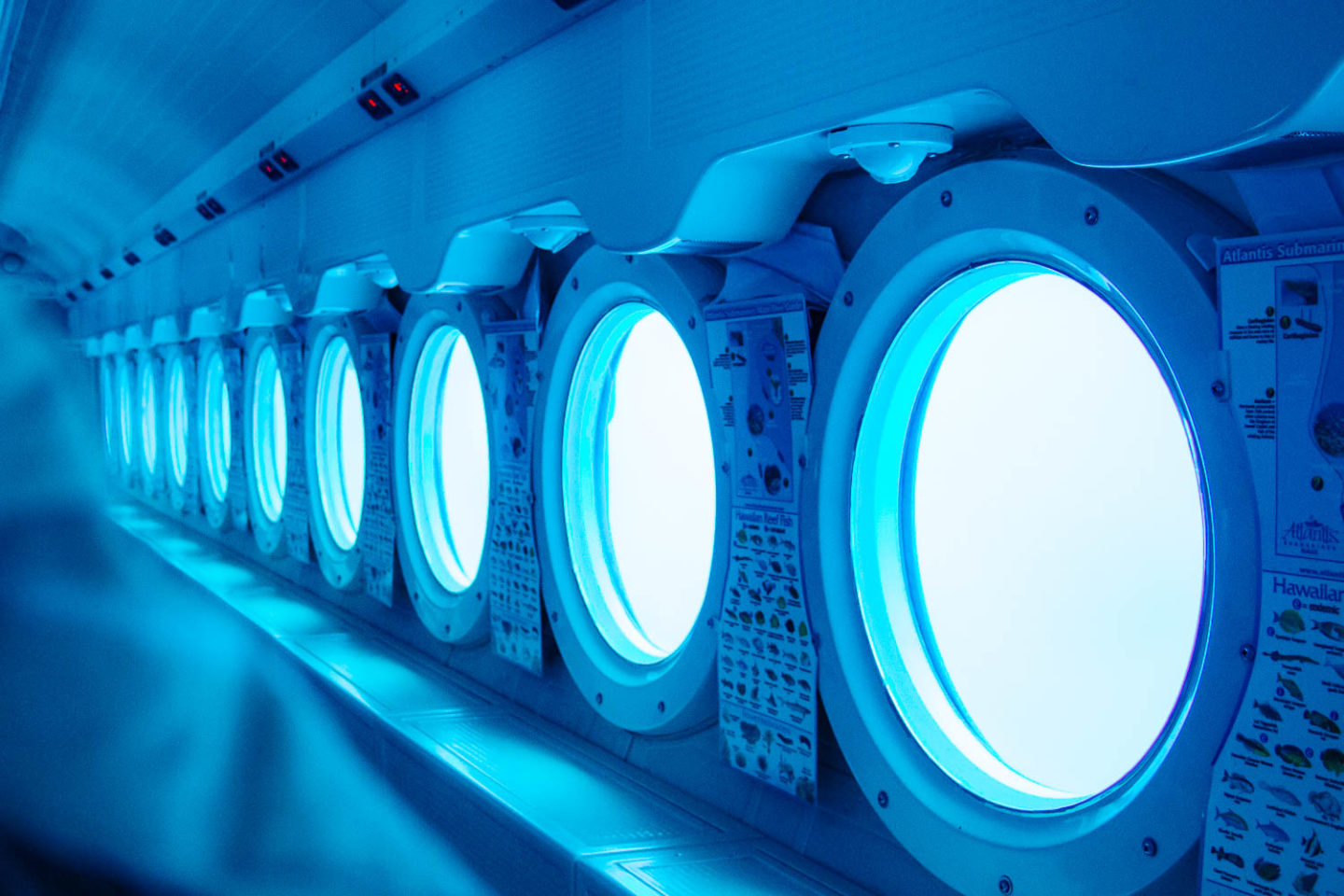
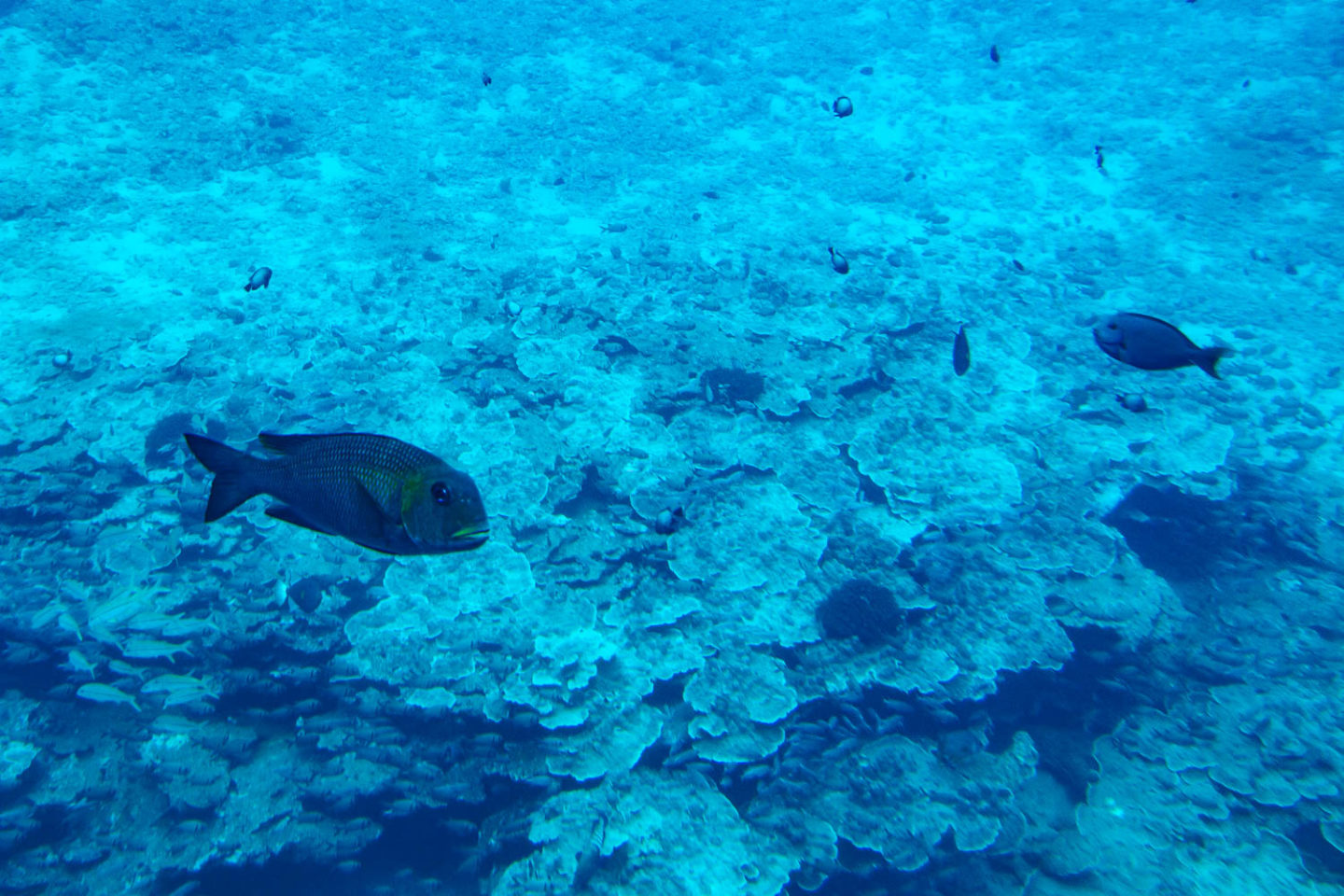
2. The Maui Underwater World from the Submarine
On rare occasions, the whales can be seen from a submarine cruising in the ocean. This, however, doesn’t happen often. The whales are smart creatures. And as any intelligent animal, they stay away from anything almost as big as they are.
But the tropical fish don’t feel bothered by the intrusion of the foreign vessel. Butterflyfish, parrotfish, angelfish, yellow tangs, pufferfish, triggerfish, surgeonfish, and many other species can reluctantly swim alongside the submarine.
The Hawaiian Islands, including Maui, are the most remote large island chain on Earth. Roughly 2,200 miles of water isolate Hawaii from the nearest land.
The majority of local marine wildlife can’t travel such long distances. So they live in the warm waters near Maui, Kauai, Oahu, and the Big Island of Hawaii. In fact, about 30% of the tropical fish in the state can’t be found anywhere else in the world.
Coral Reef
The underwater creatures we saw off the shore of Maui dwell in the coral reef valleys. Covered with algae, the reefs provide both food and protection for the tropical fish.
The coral reef itself is a remarkable marine environment. It’s made up of thin layers of calcium carbonate that is very sensitive to touch. Any careless action can damage or kill fragile living creatures that create this unique underwater ecosystem. Restoration may take years and years as the coral reef grows extremely slowly, at an approximate rate of about 0.2 to 0.8 cm a year.
Coral reef bleaching is another important issue that affects the ocean. The Maui underwater world is somewhat safe in this department. Water temperatures here range between 75 and 82 degrees Fahrenheit.
These cooler waters, compared to other tropical islands, protect the reefs from bleaching. Unfortunately with climate change, even Hawaii sees increased incidences of coral reef bleaching.
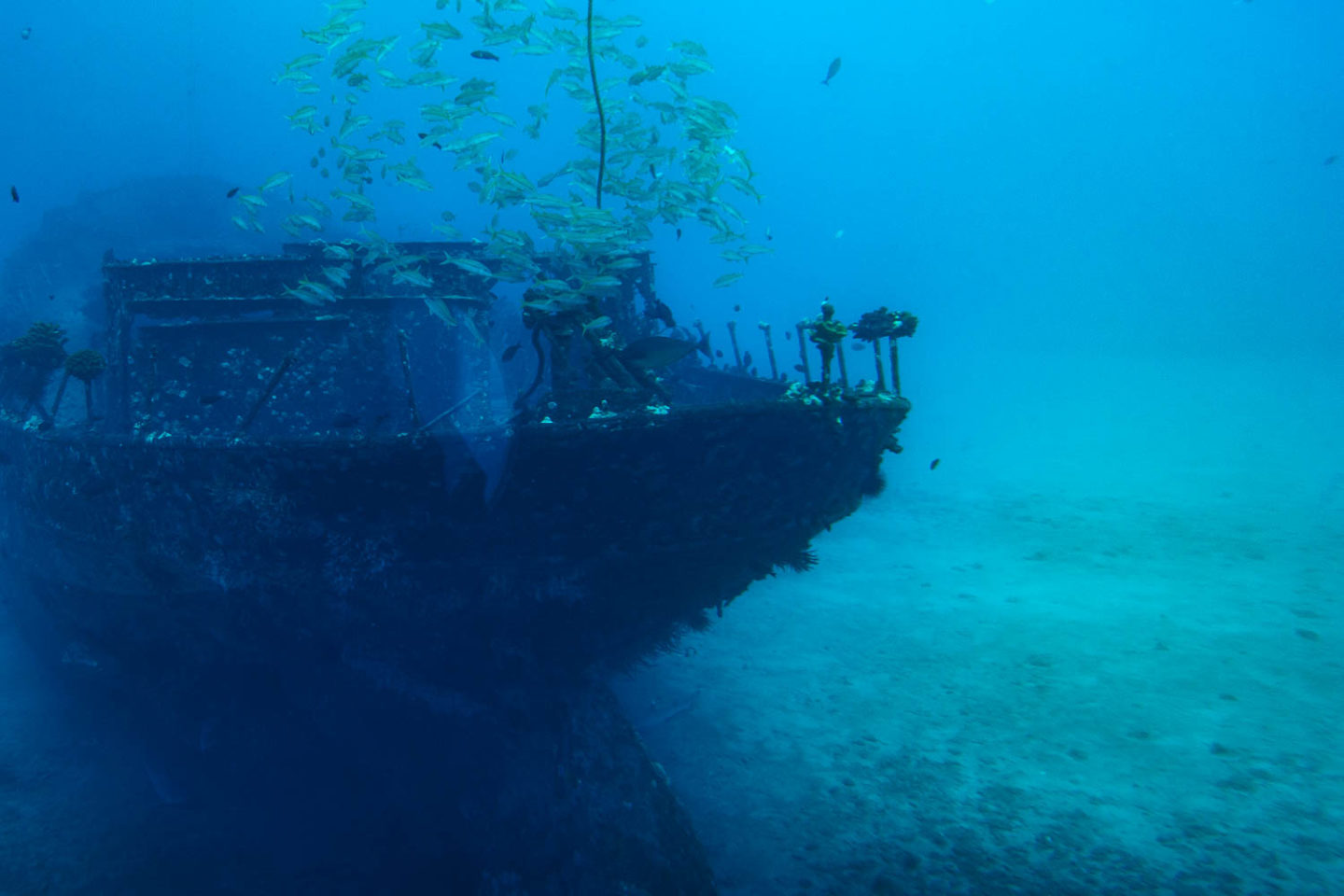
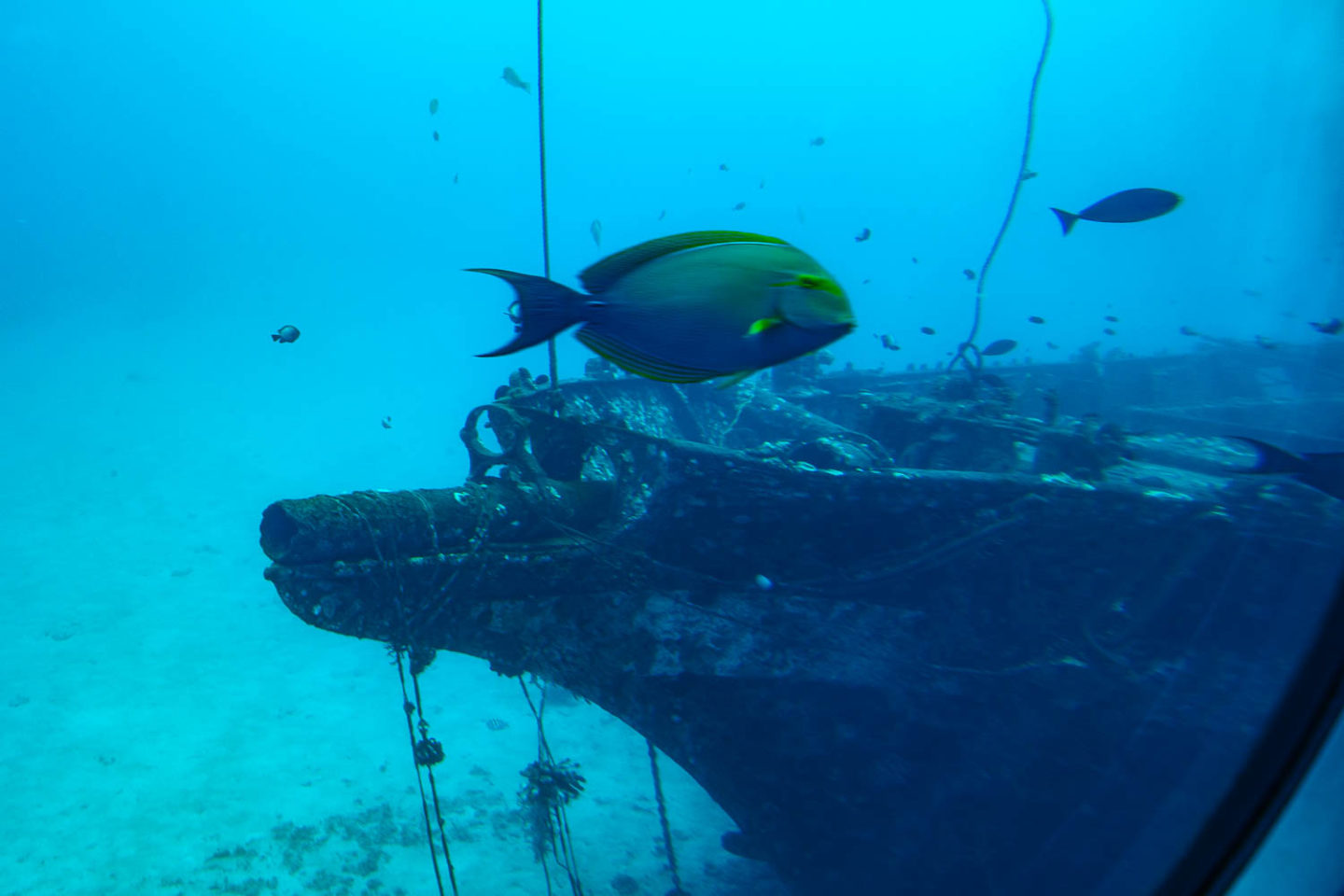
Artificial Reef
After introducing its visitors to the coral reef in the Maui area, the captain navigated the submarine toward an artificial reef aka a shipwreck. Once a floating museum, the Carthaginian II sits 97 feet under the surface off the coast of Maui. Over the years, it has become a safe haven for many tropical fish that look for protection along the algae covered deck.
Schools of frogfish, trumpetfish, orange spine unicorn fish, rainbow cleaner wrasse flock to the shipwreck. Some swim above the sunken vessel. Others hide inside its water-filled cabins. At the seabed, right under the wreck, juvenile sharks often snuggle after an apparently abundant feast.
The Carthaginian II was a replica of a whaler that was destroyed on April 2, 1973. Serving as a bridge that united Lahaina’s past and present for a long time, the ship-museum turned into a very costly project at the end of its existence. Lahaina Restoration Foundation was spending nearly $50,000 a year to keep the vessel afloat.
In 2003, the foundation approached Maui Atlantis Adventures with a proposal to turn the Carthaginian II into an artificial reef. Two years later, on December 13, the ship was towed away from its anchorage and sunk.
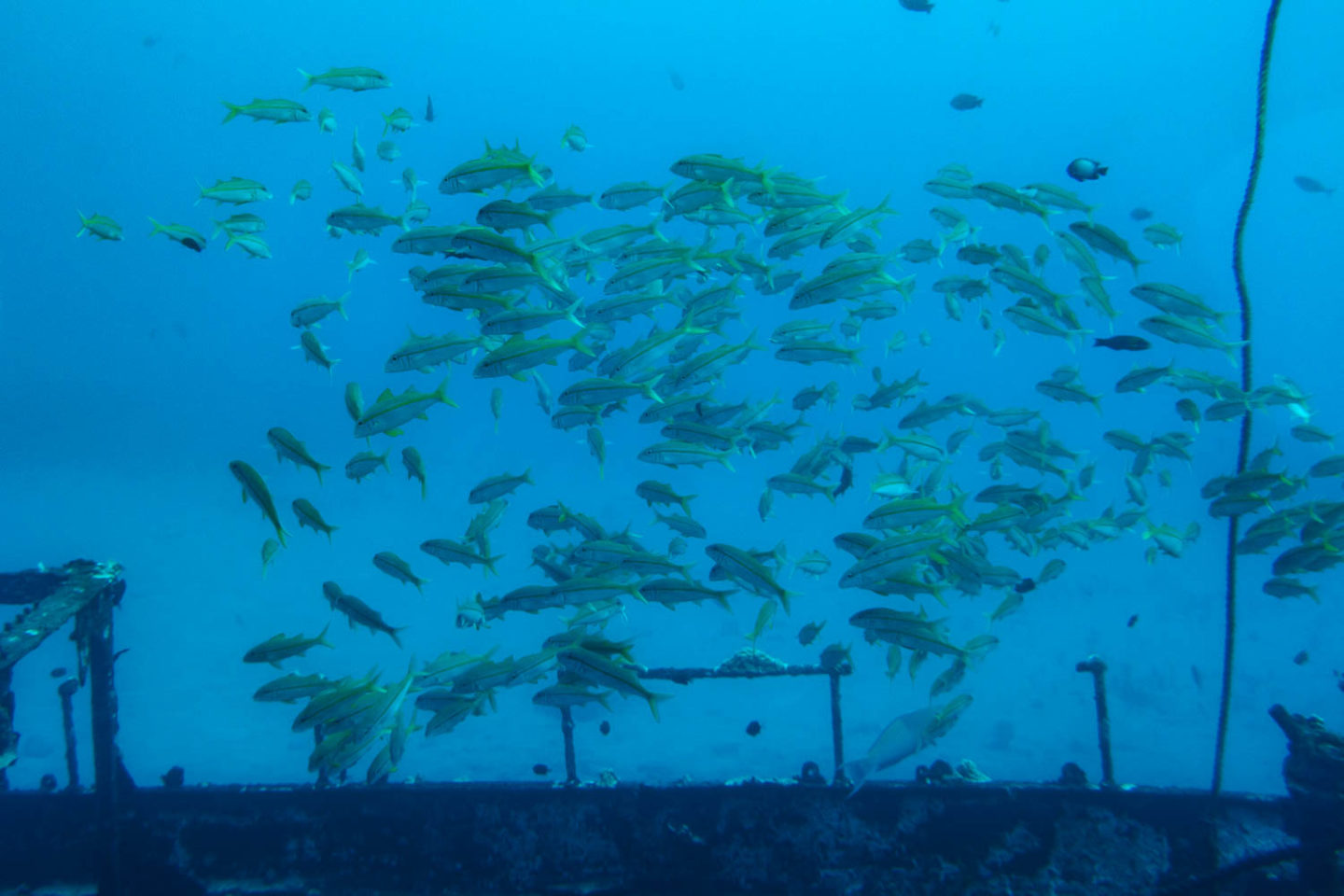
Lack of Colors in the Underwater World of Maui
On that eventful spring morning, the Maui underwater world looked dull. Spoiled by images of the Great Barrier Reef, I expected to see vibrant red, yellow, and green tones. The Maui coral reef looked nothing like that. A lot of blue hues and sporadic yellow fish tails prevailed.
I was not the only one puzzled by the Maui subdued underwater realm. The explanation came almost at the end of the tour. As the submarine started surfacing, the tones in the water and inside the vessel were becoming brighter and more vivid.
The colors indeed disappear under the water. The water absorbs different wavelengths of light to different degrees. Red, one of the longest wavelengths with the lowest energy, is usually absorbed first. Orange and yellow closely follow it.
Blue and violet penetrate best and are often the prevailing colors in the underwater world off the coast of Maui.
Things to Know before Joining Maui Undersea Tour
Admission
The Maui Underwater tours come with a hefty price, around $150-180. But the experience is well worth it. The tours are operated all year round and sell quickly during the peak season. So make sure to book them in advance.
Whale Watching Opportunities
While not the primary purpose, Atlantis Submarine Tours on Maui offer a great opportunity to see some whales. The chances of enjoying playful shows presented by these massive marine creatures increase tremendously from December through March, otherwise known as whale watching season on Maui.
Morning Tours
Normally, the early morning tours don’t get picked as fast as the later submarine excursions. During our underwater adventure, only about 15 of us arrived at Lahaina Harbor for the 9-o’clock “dive”. We sat on one side of the submarine and were able to see more of the Maui underwater world than any members of larger groups usually do.
So I’d say, go for the first submarine dive of the day and hope that the majority of the Maui visitors prefer to sleep in.
Paid Parking
If you’ve missed all free parking spots, park at a paid parking lot. One of the closest ones is located at 155 Dickenson Street.
Our Maui Undersea Adventure: Photo Gallery
